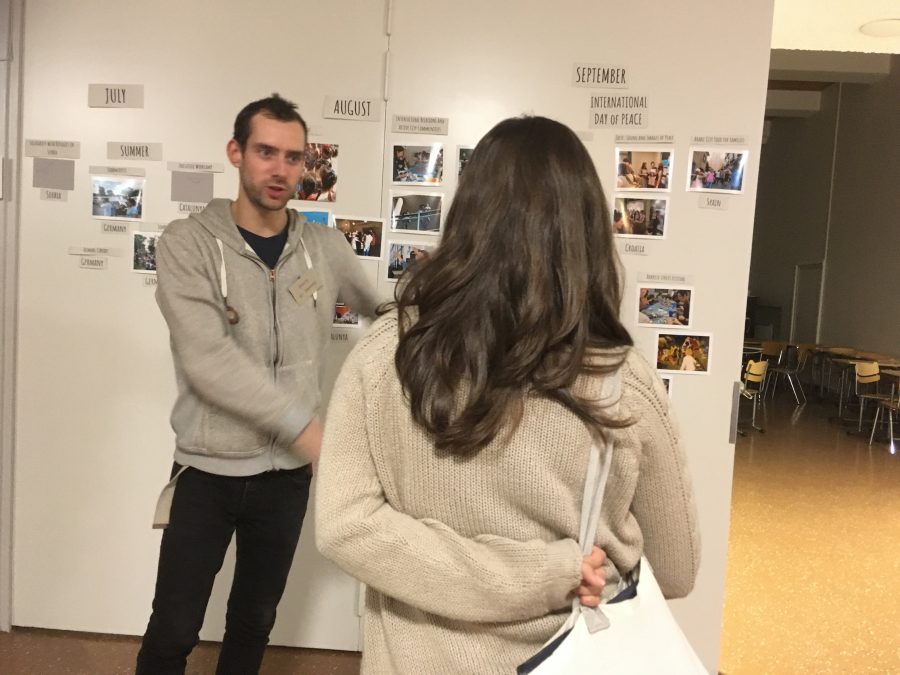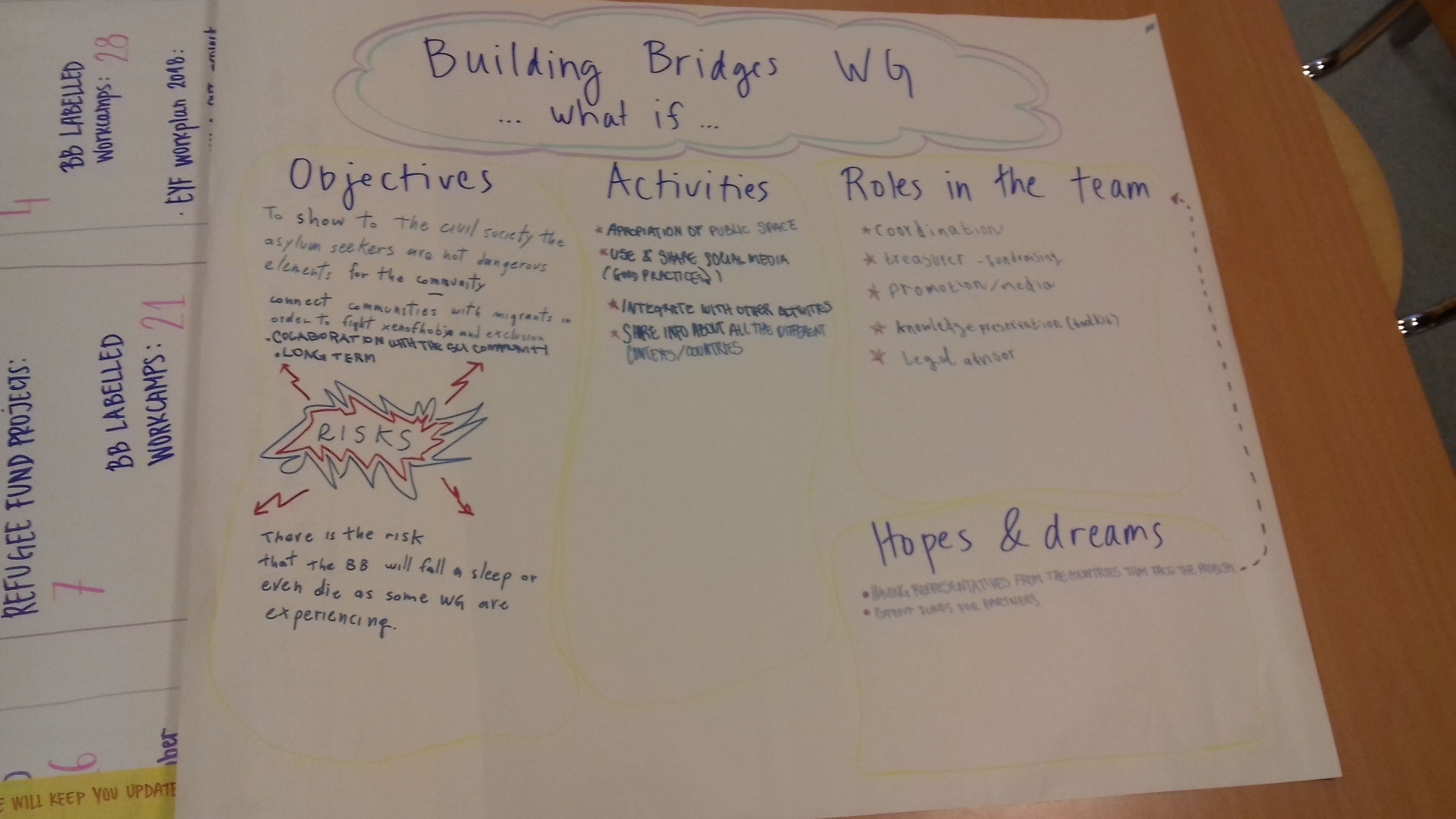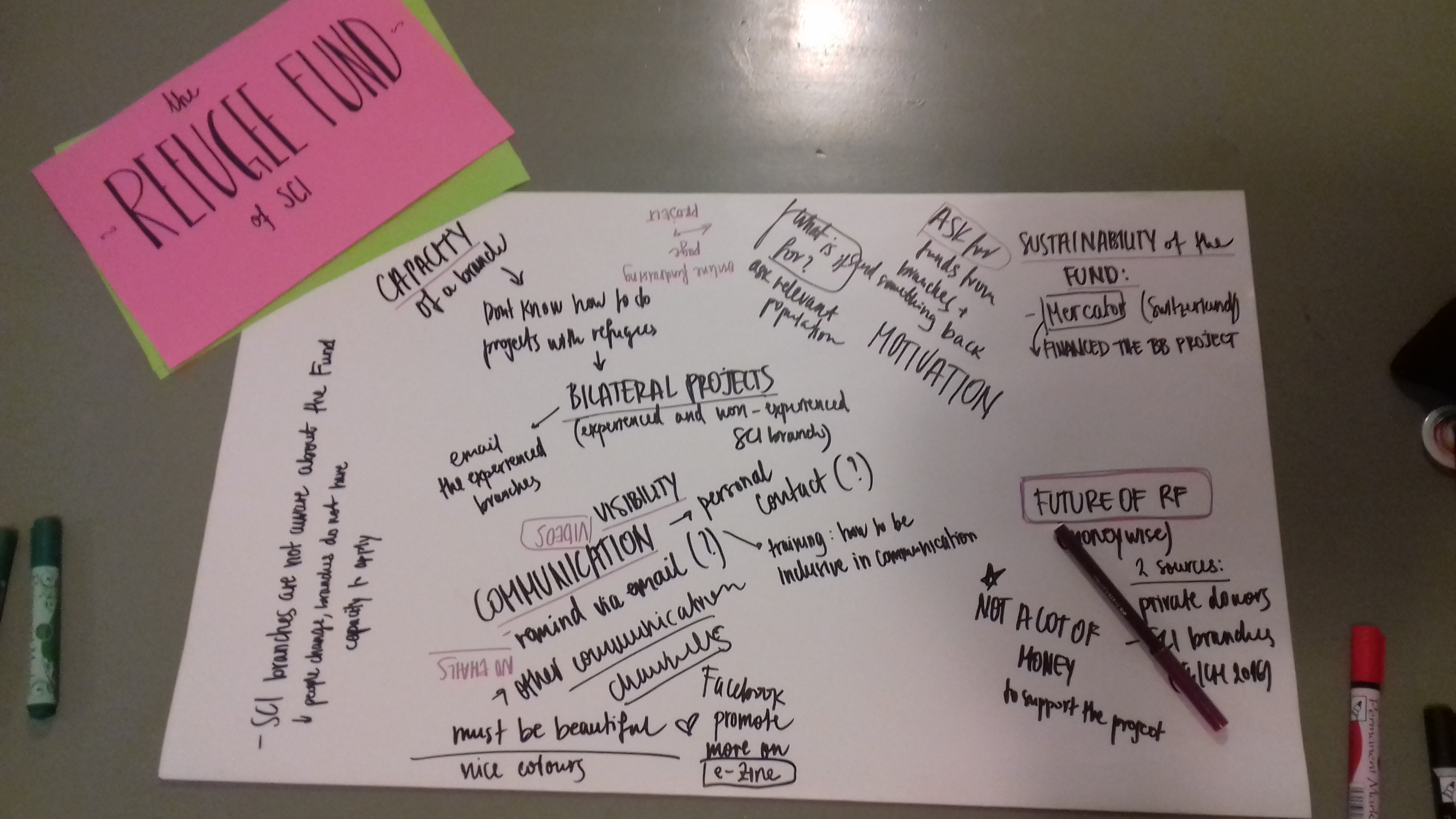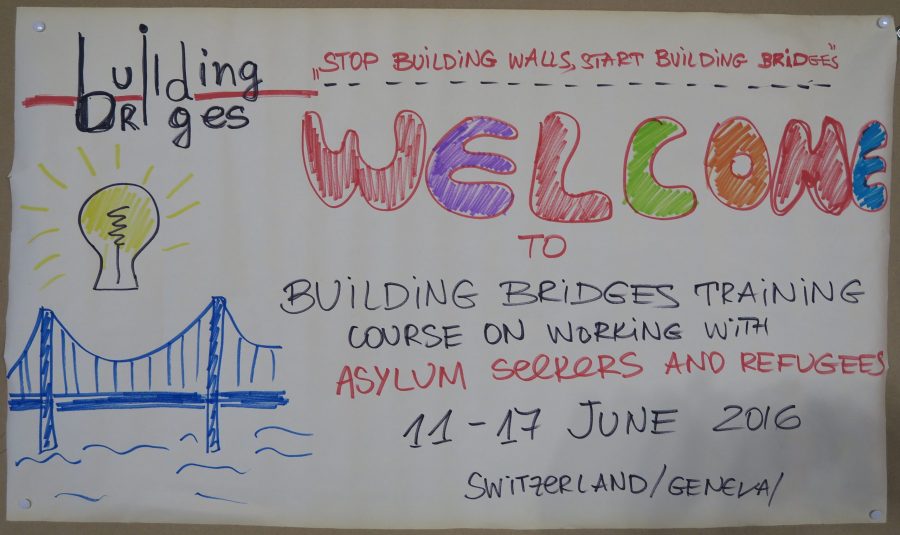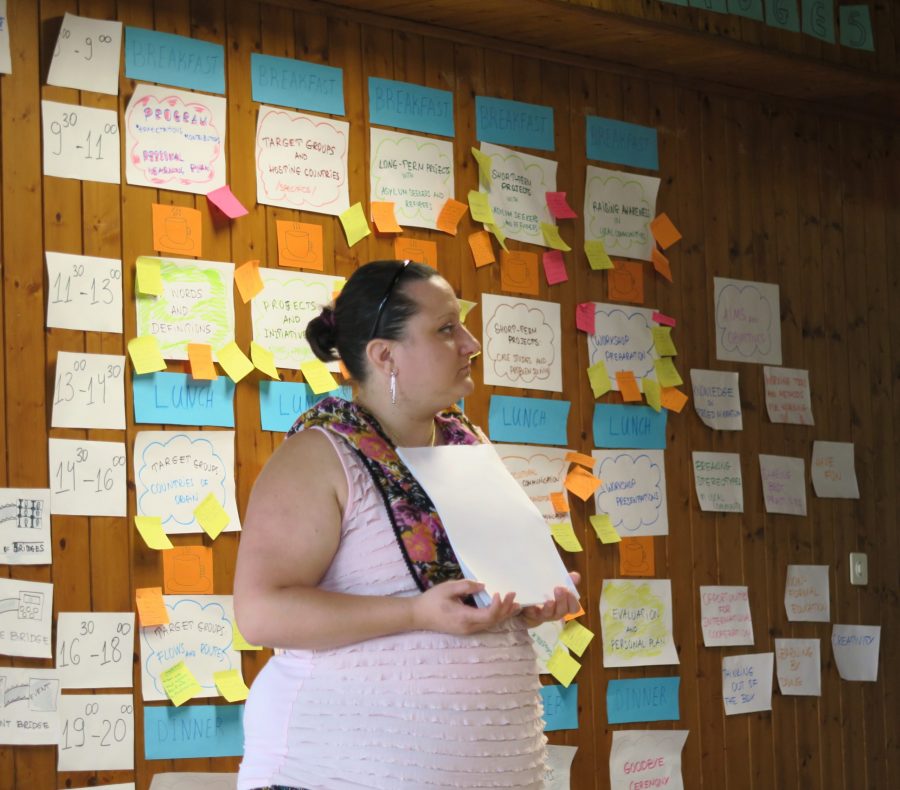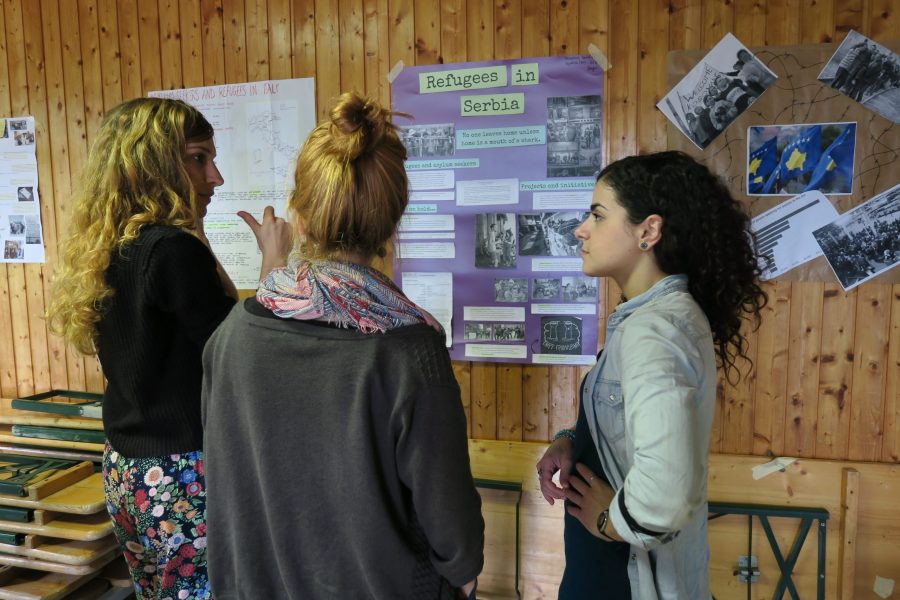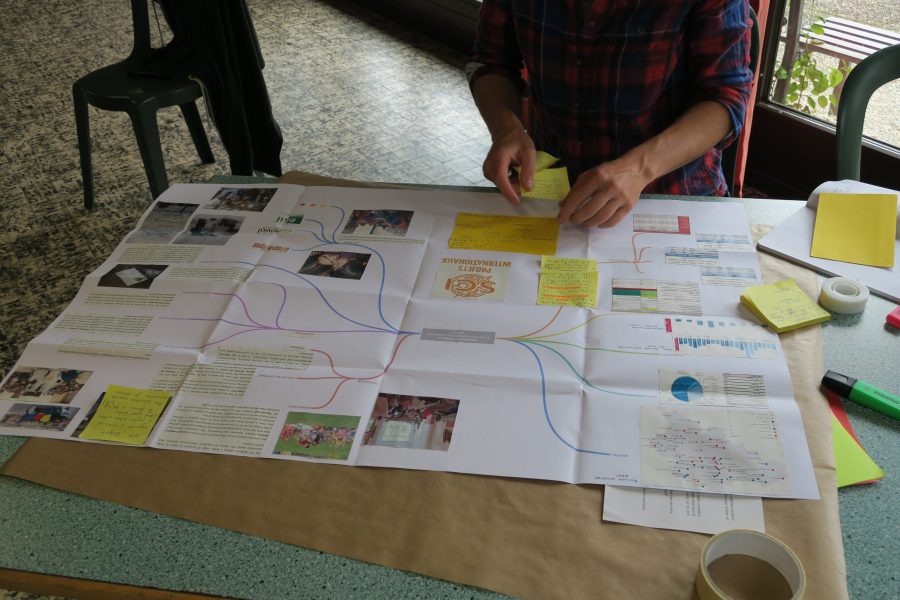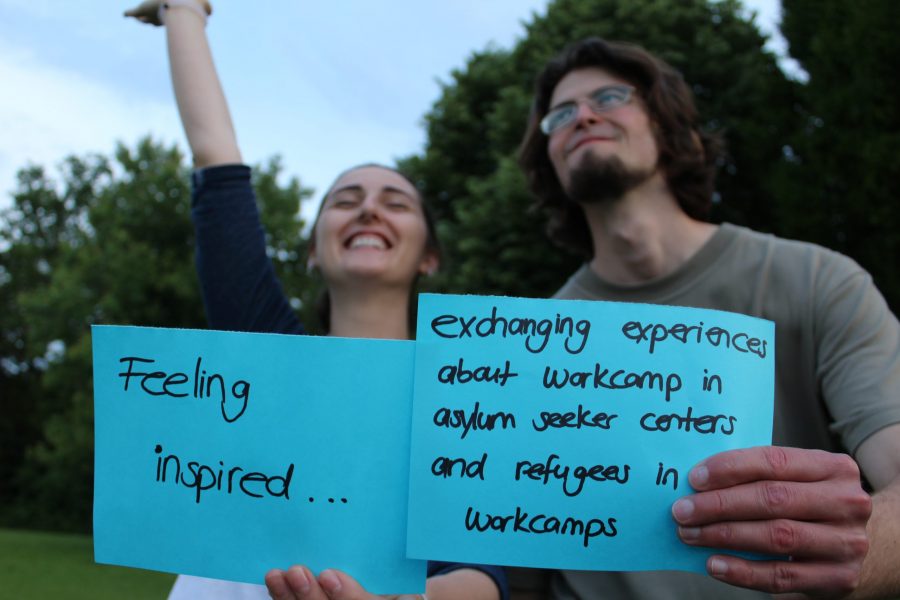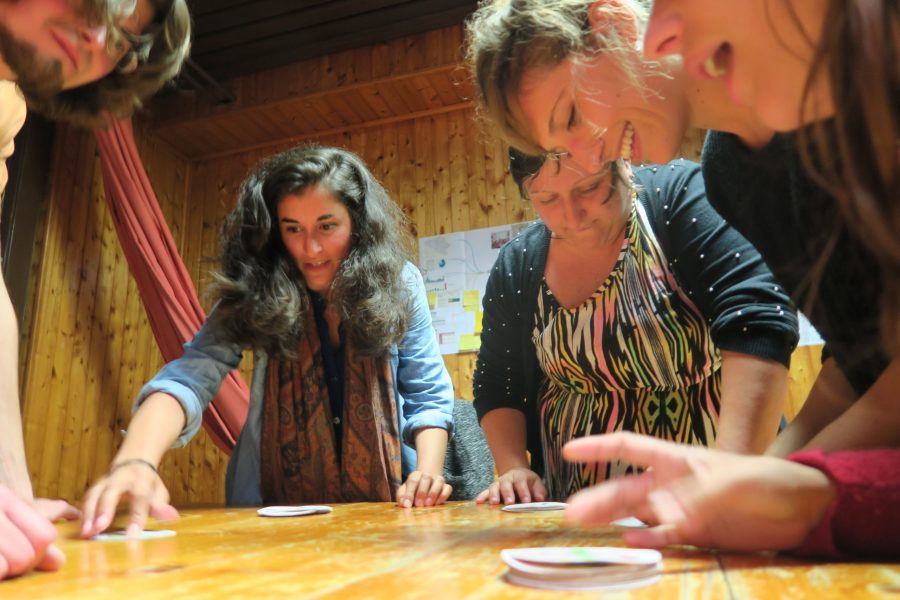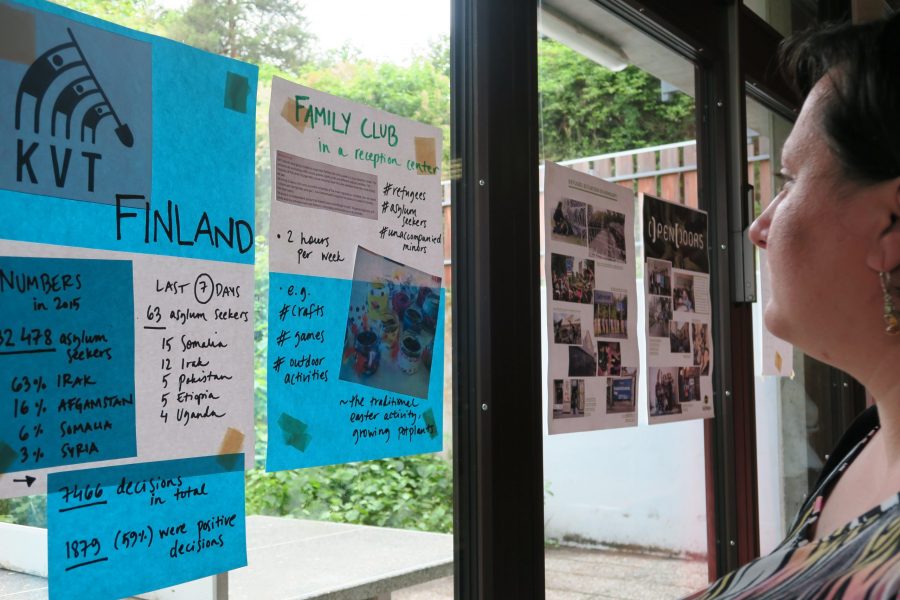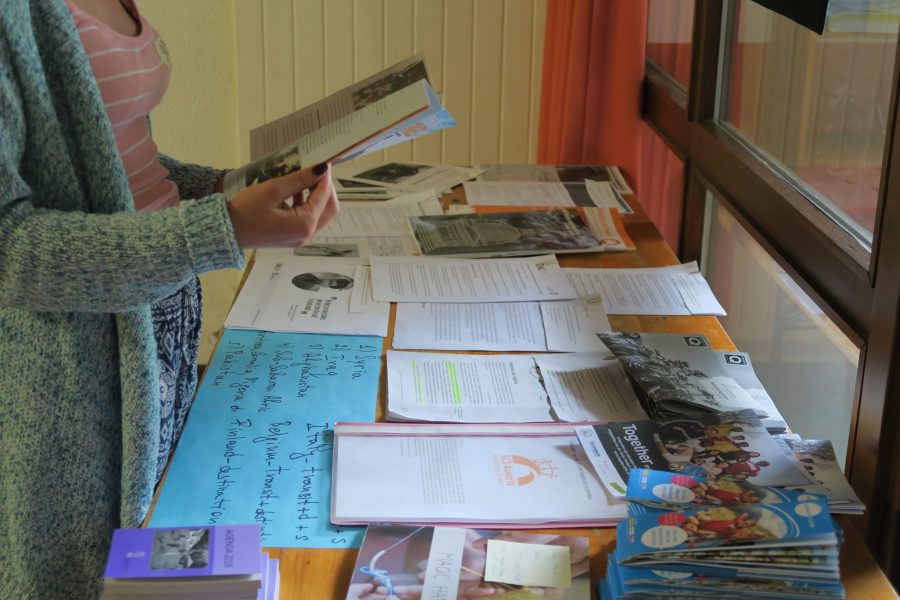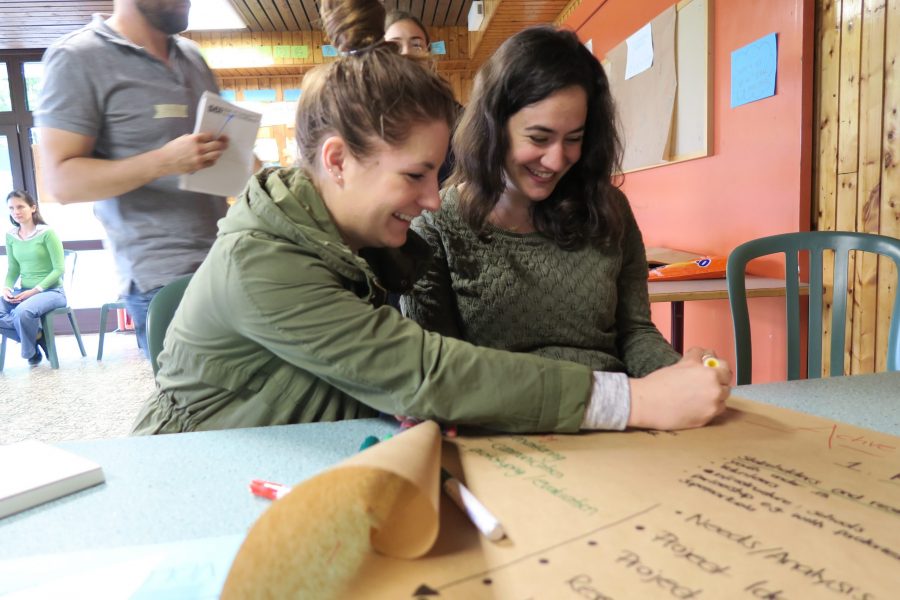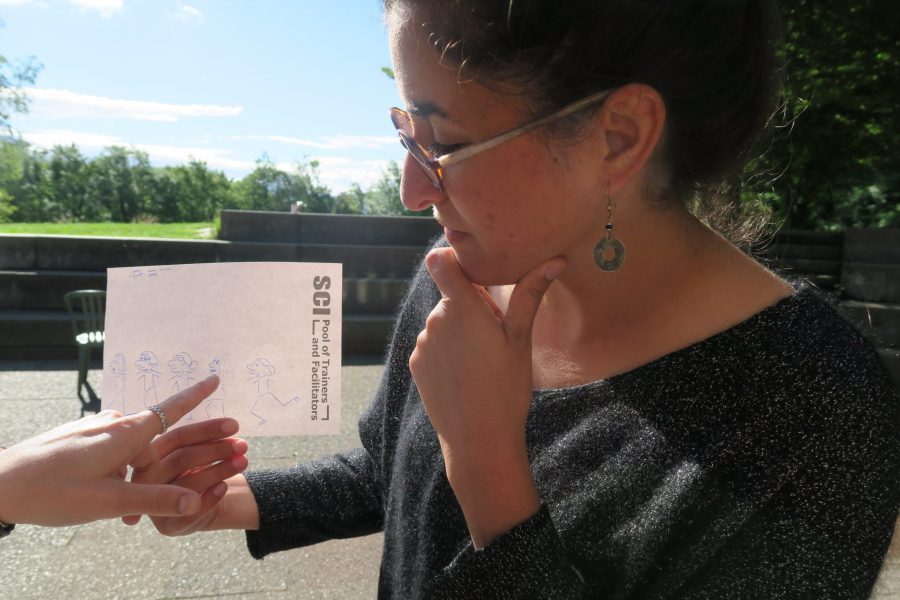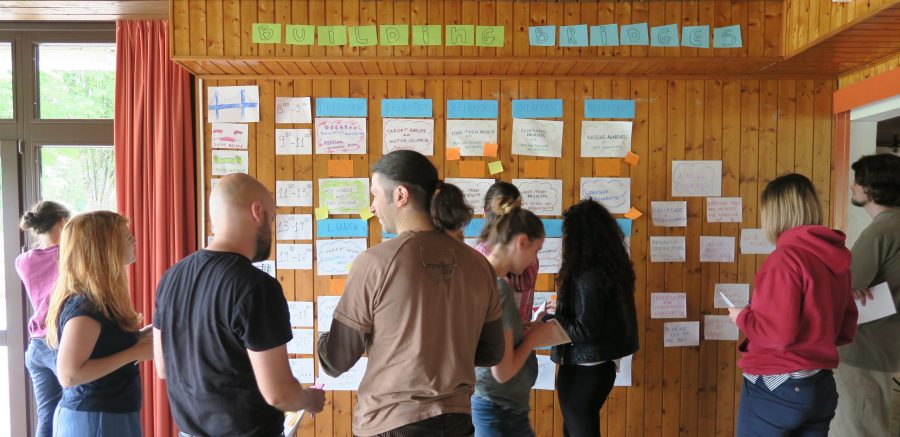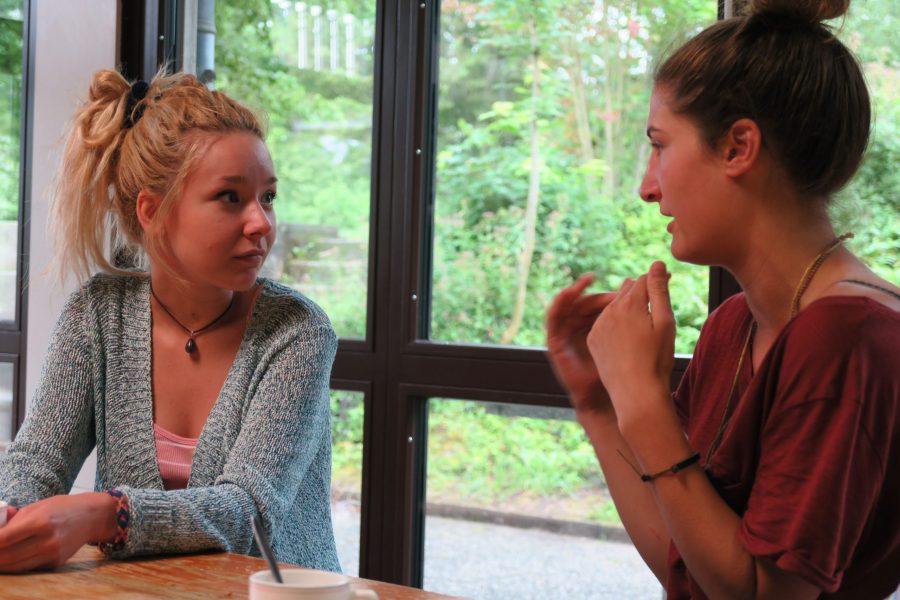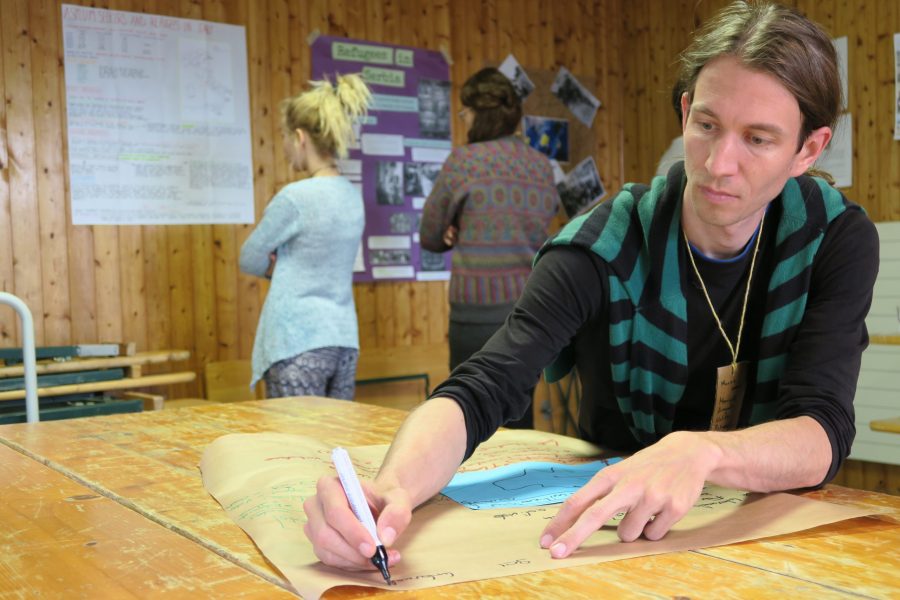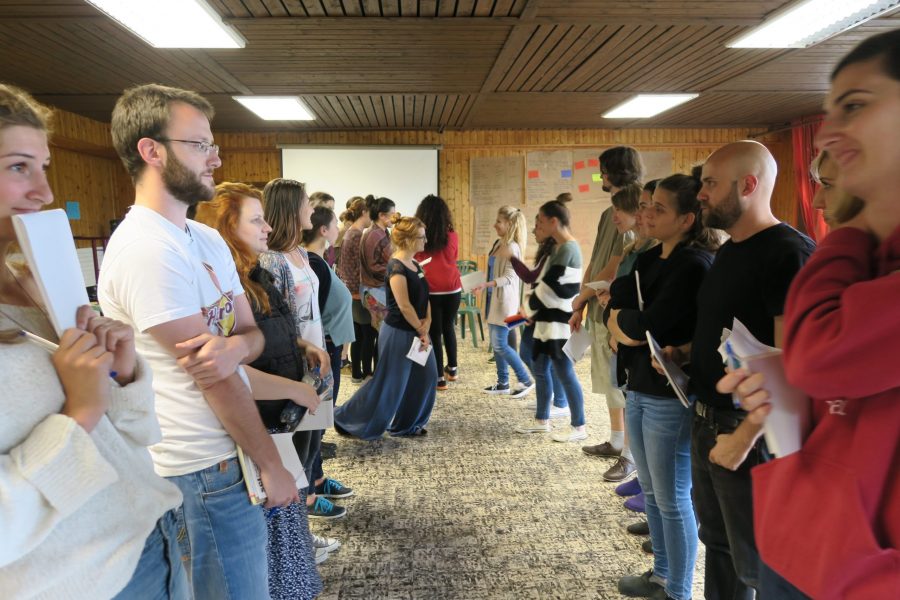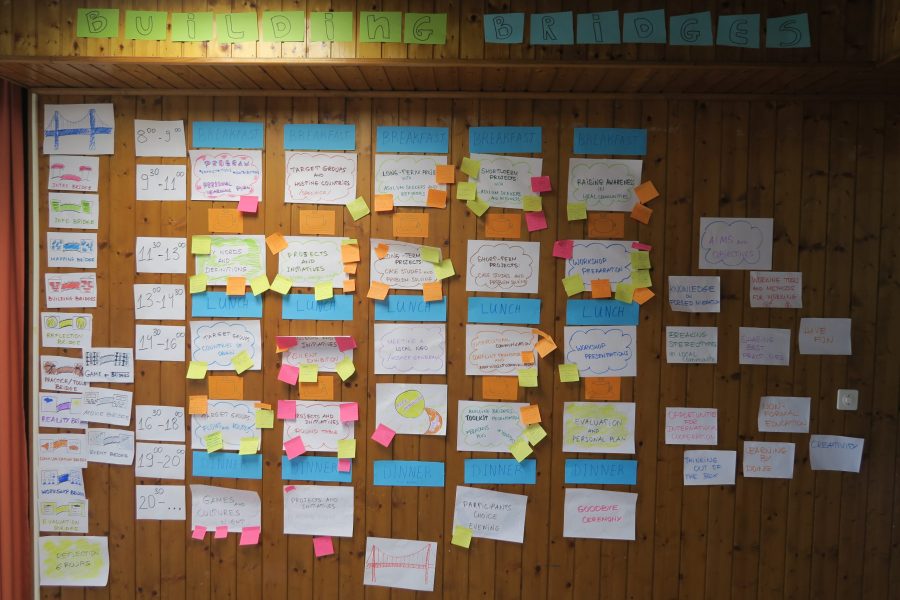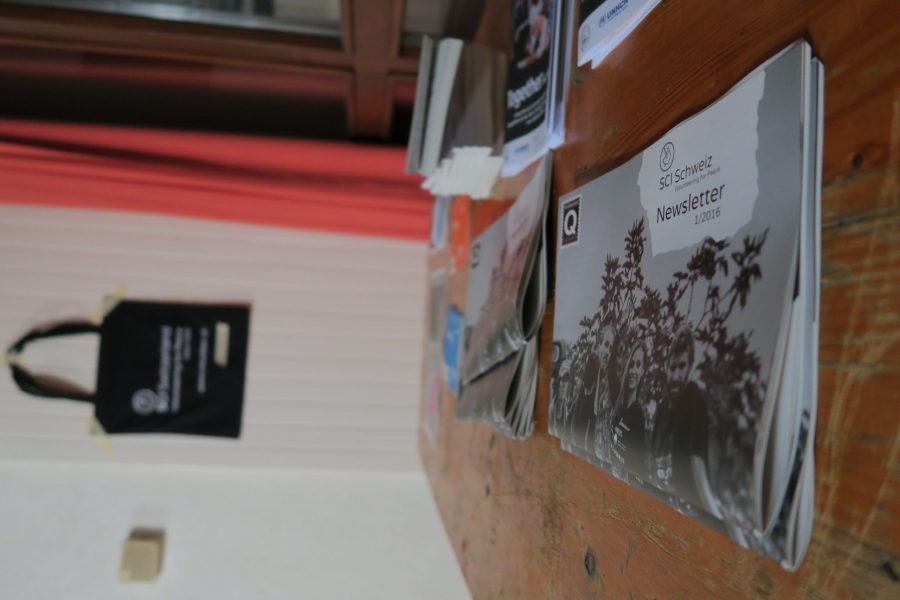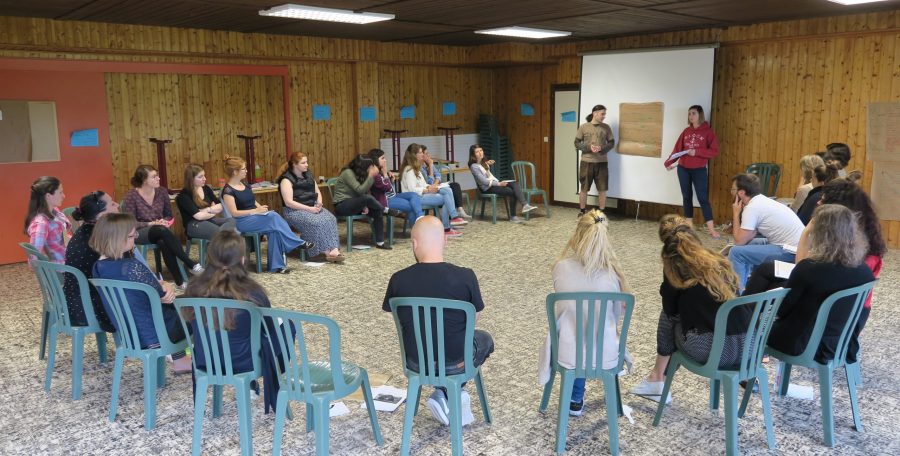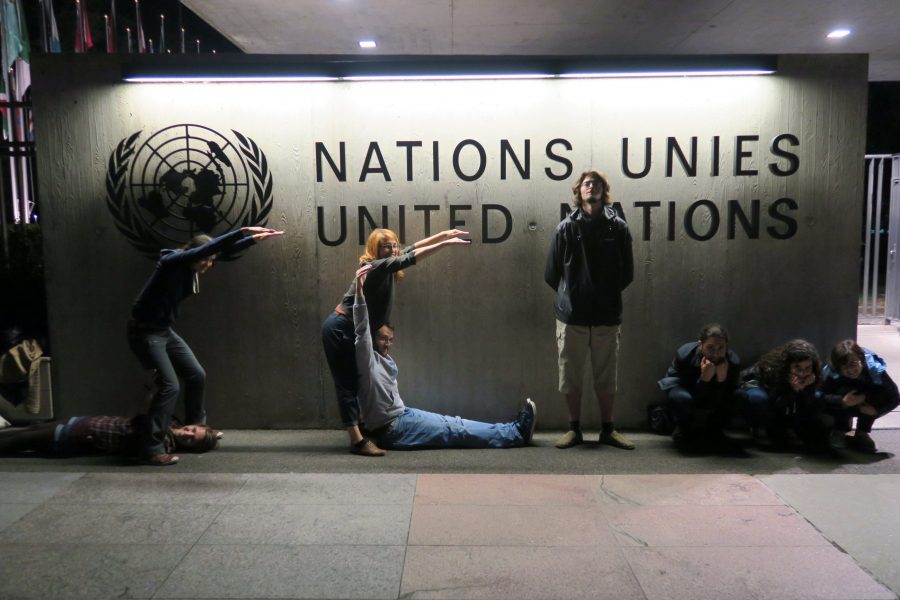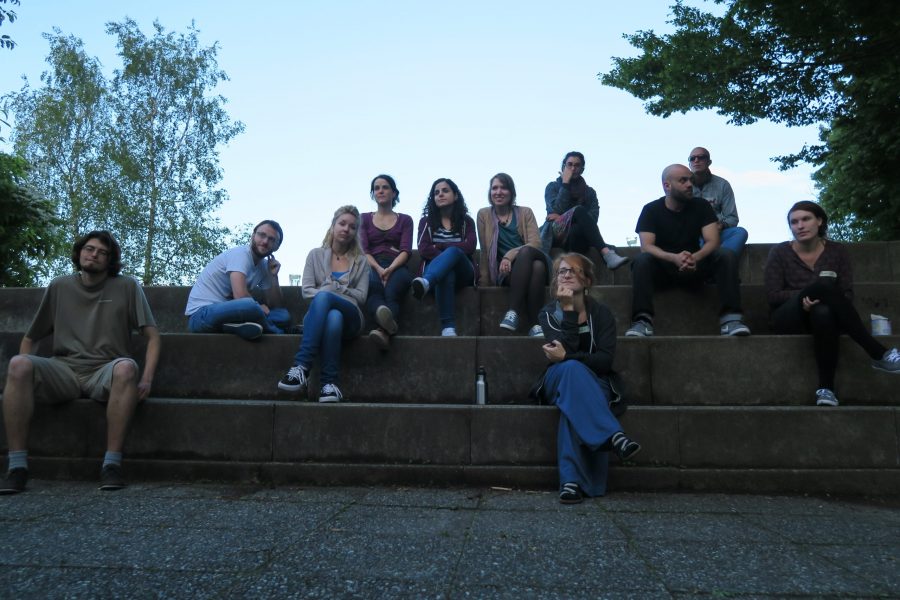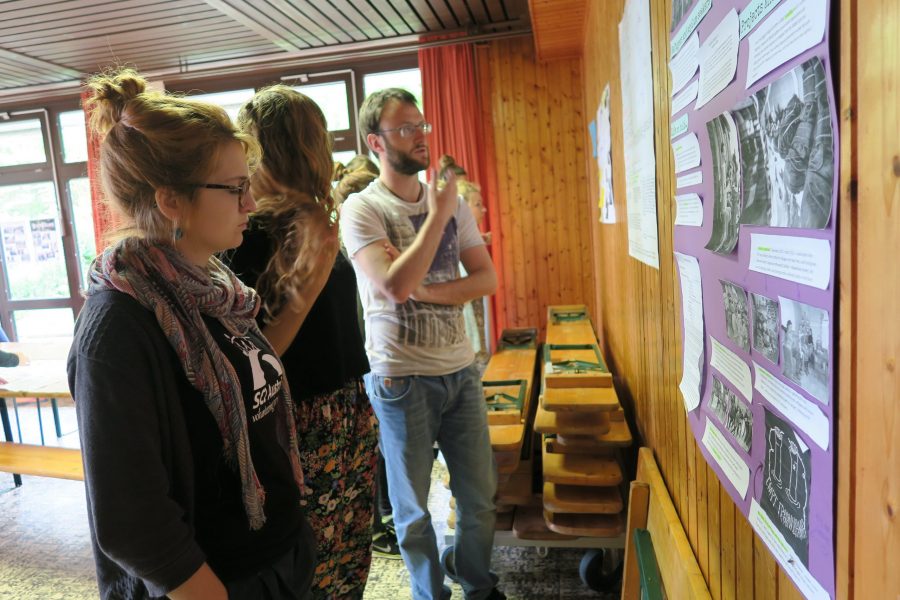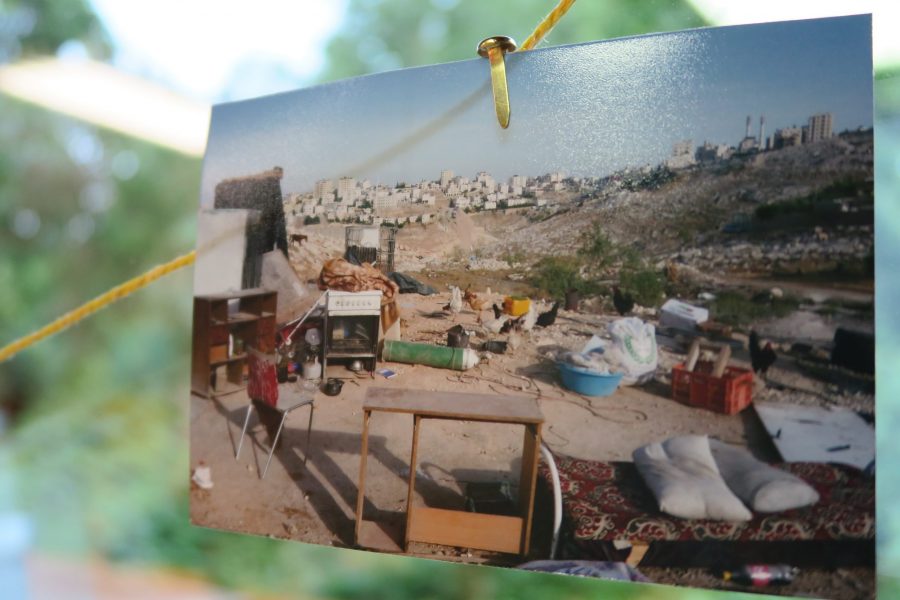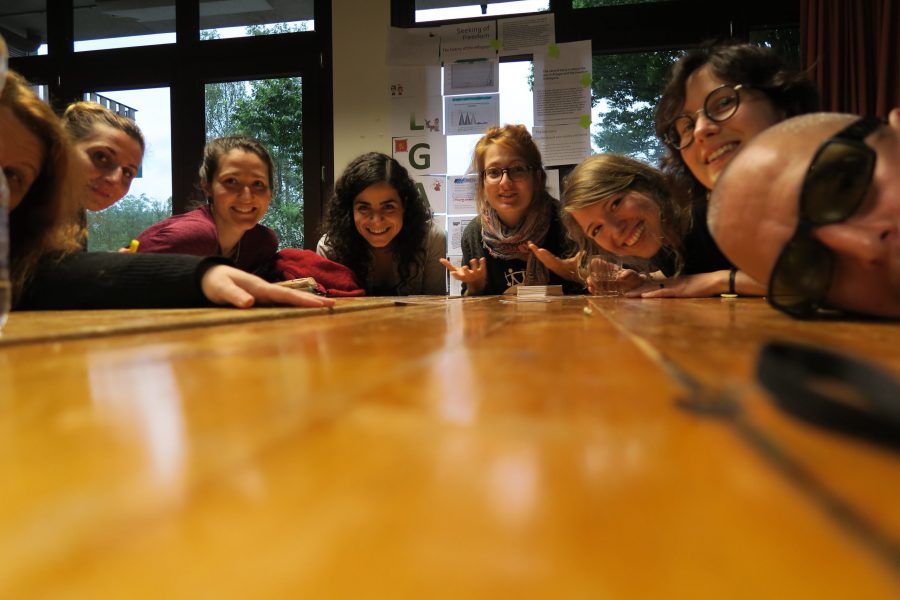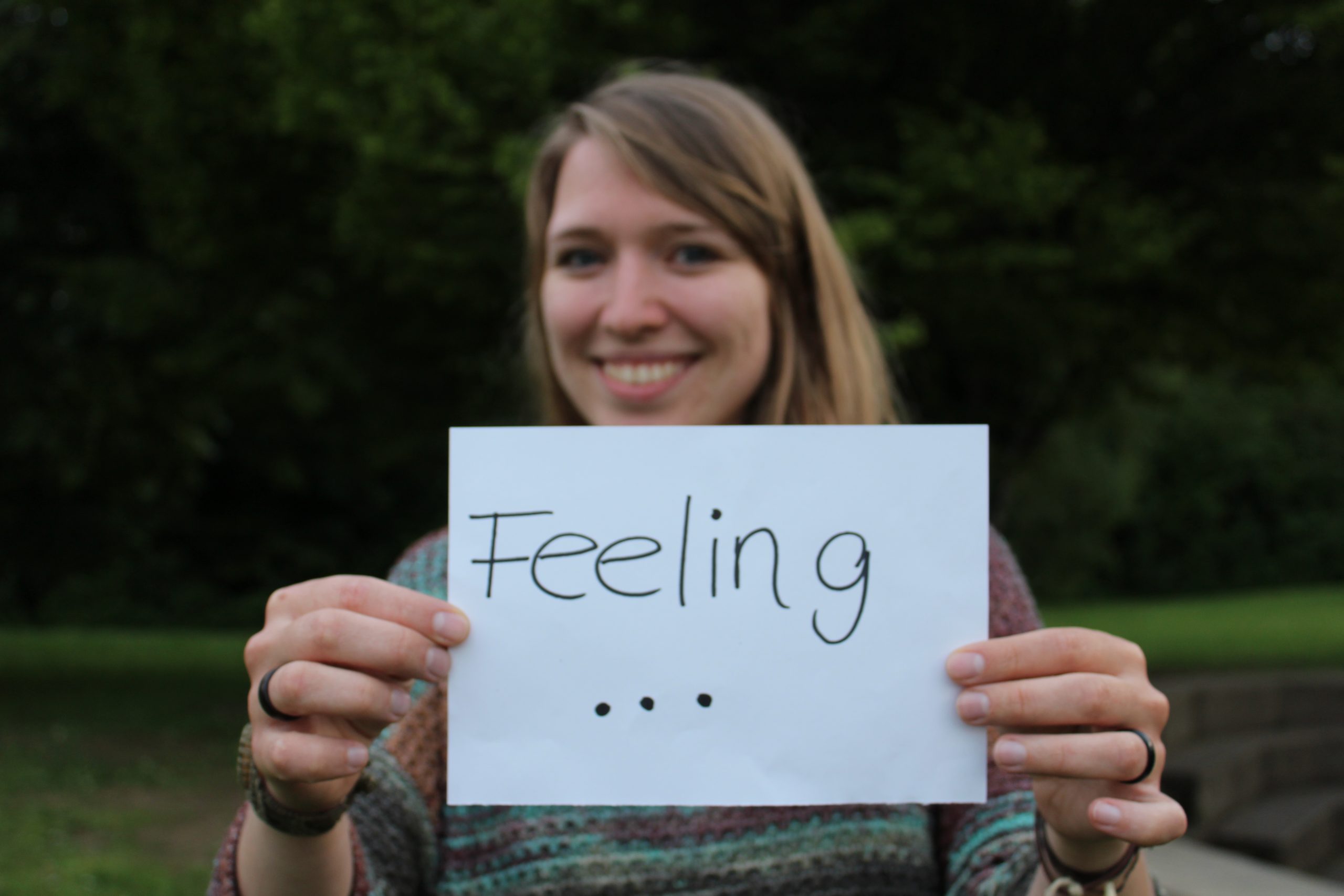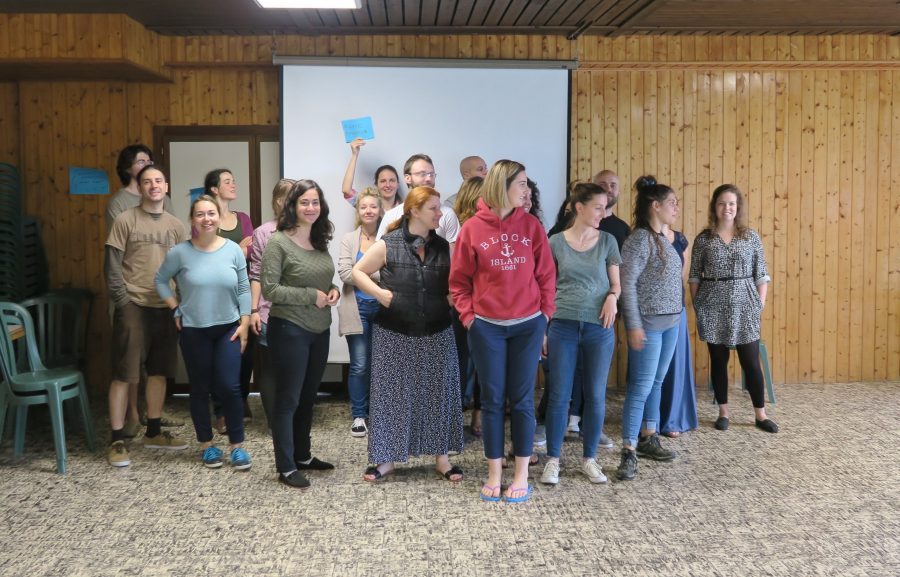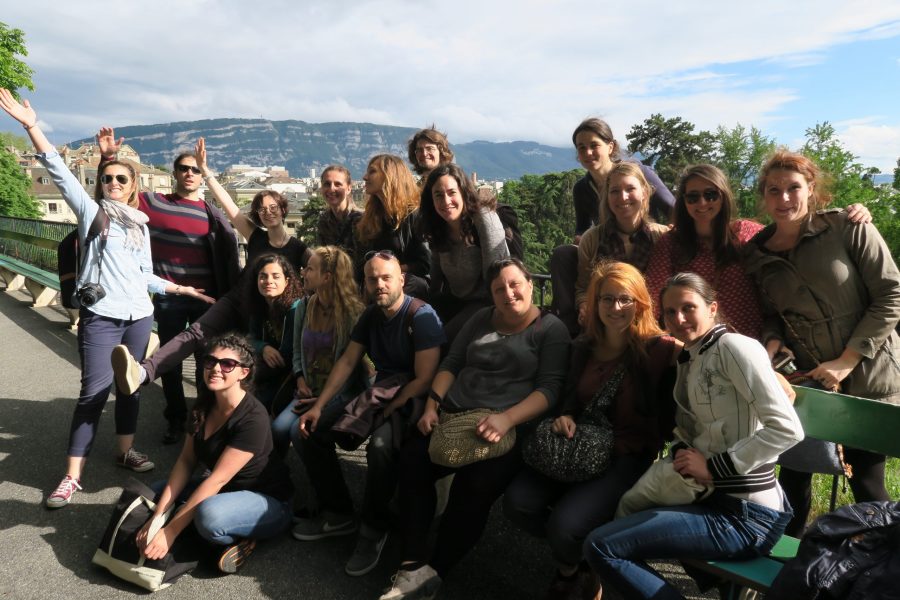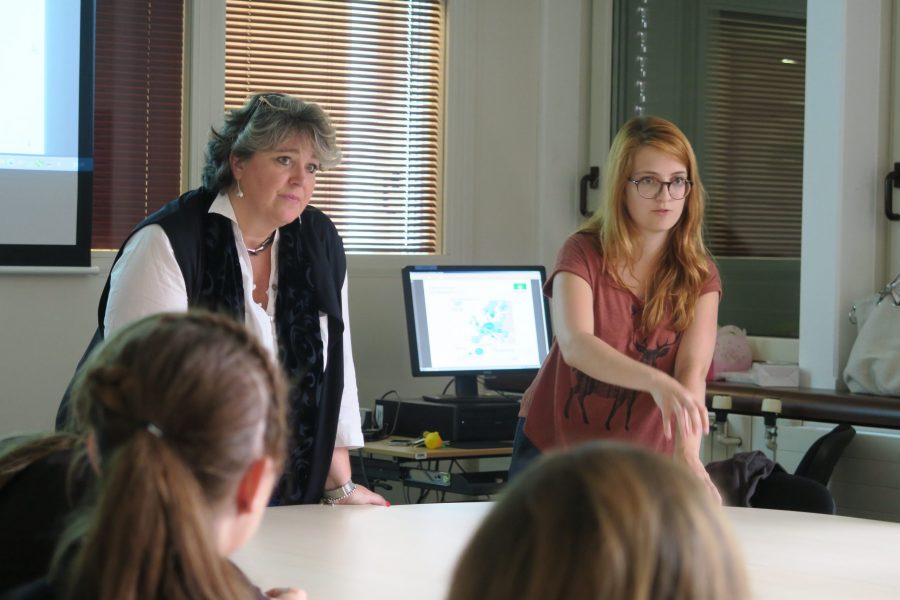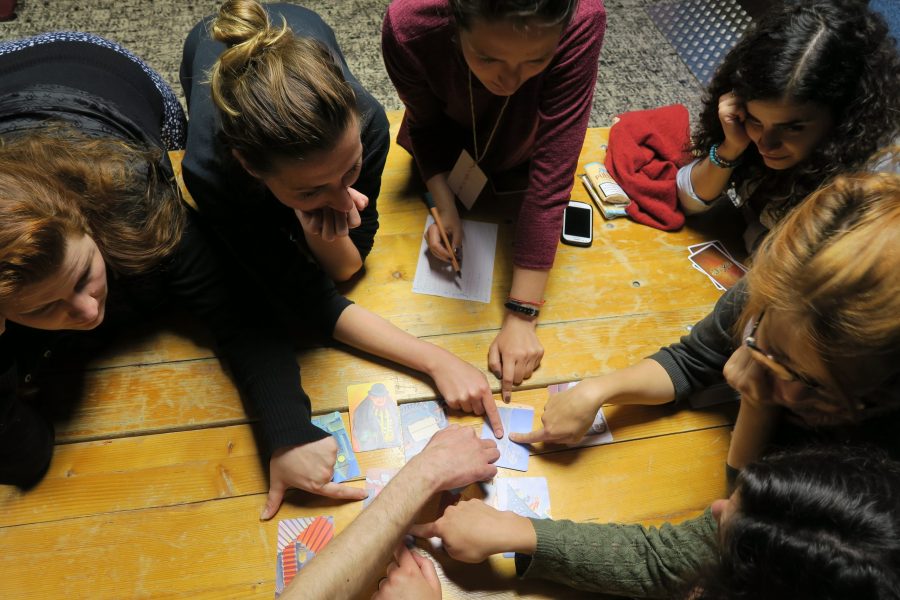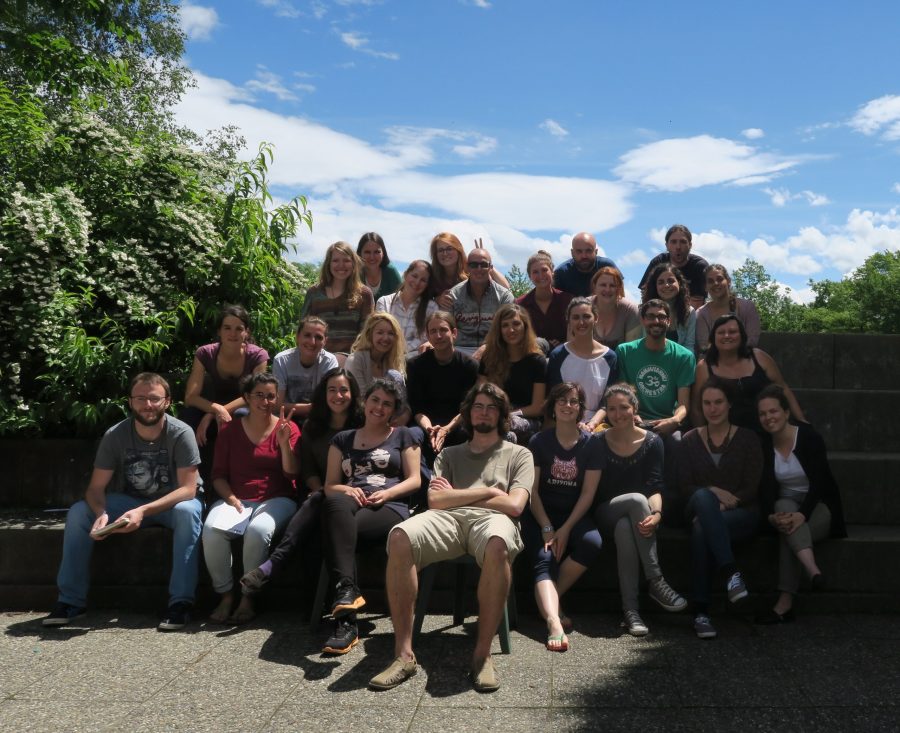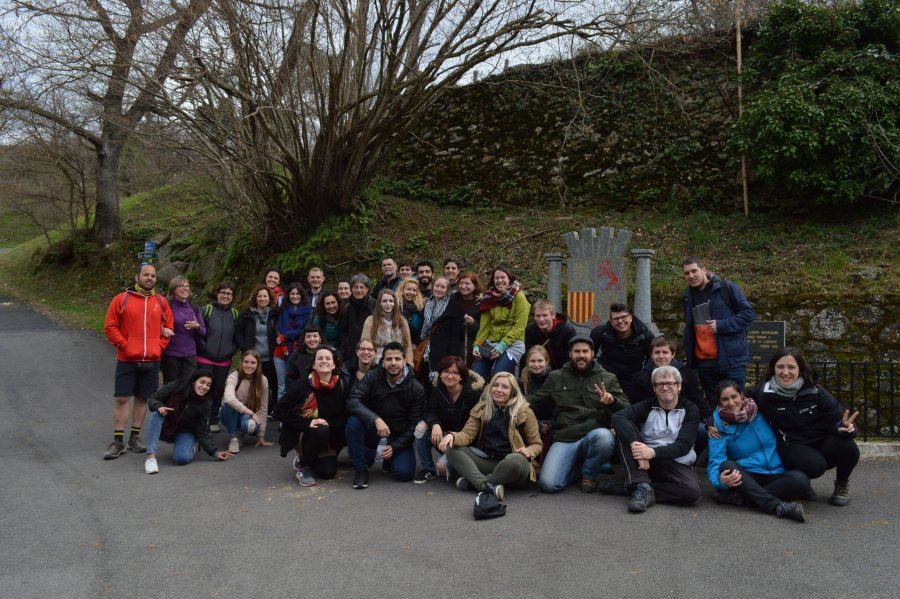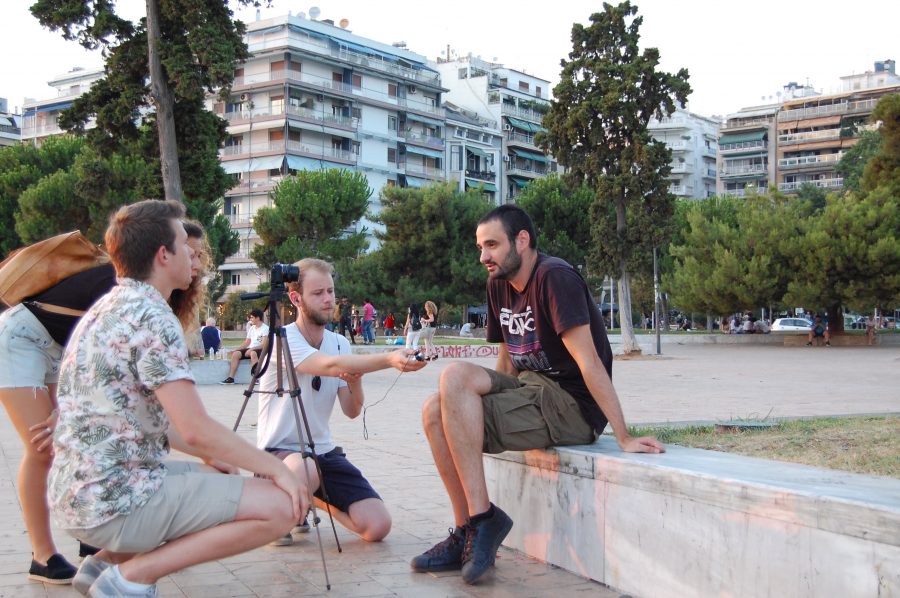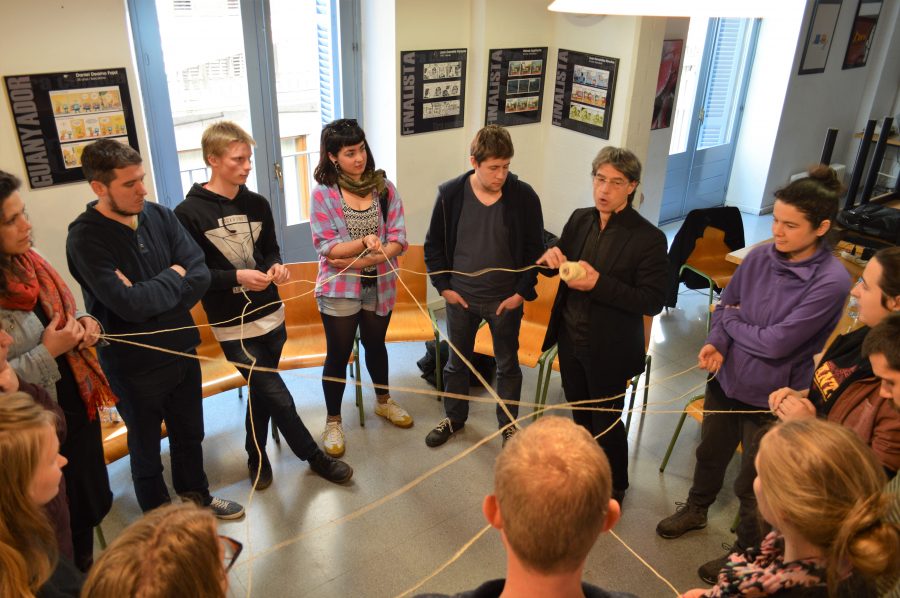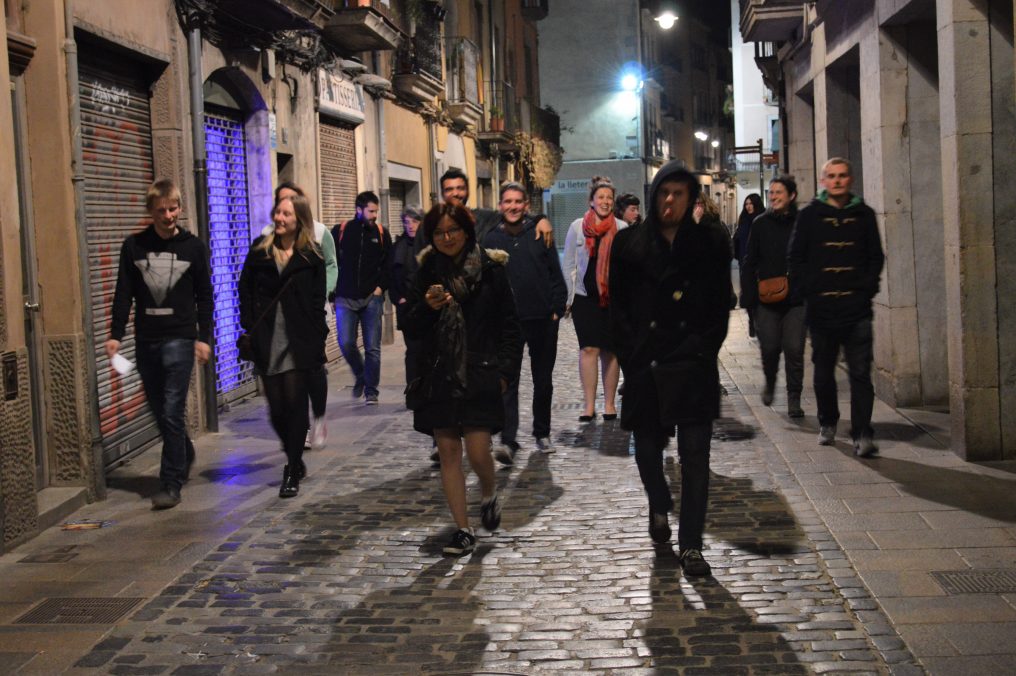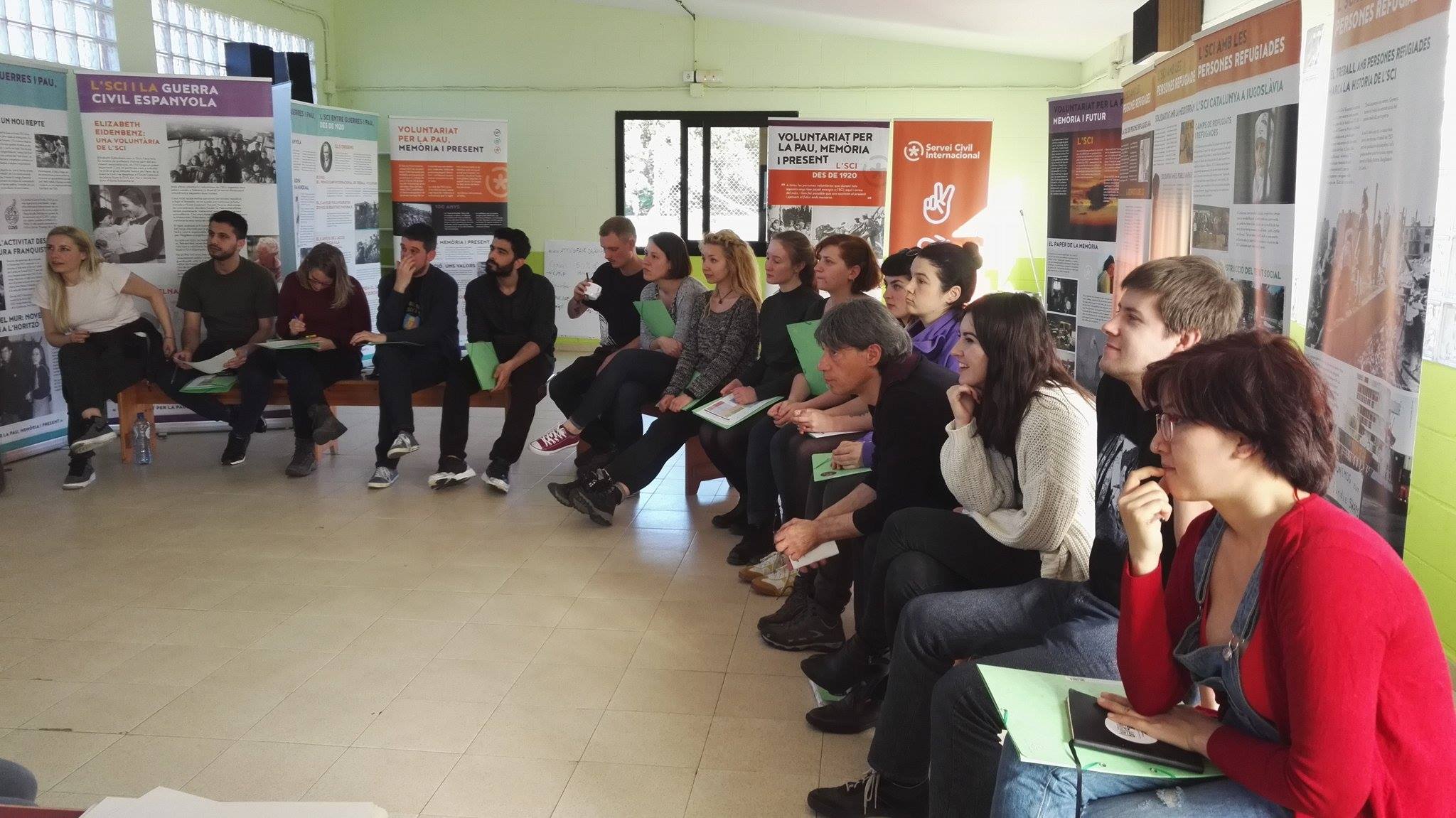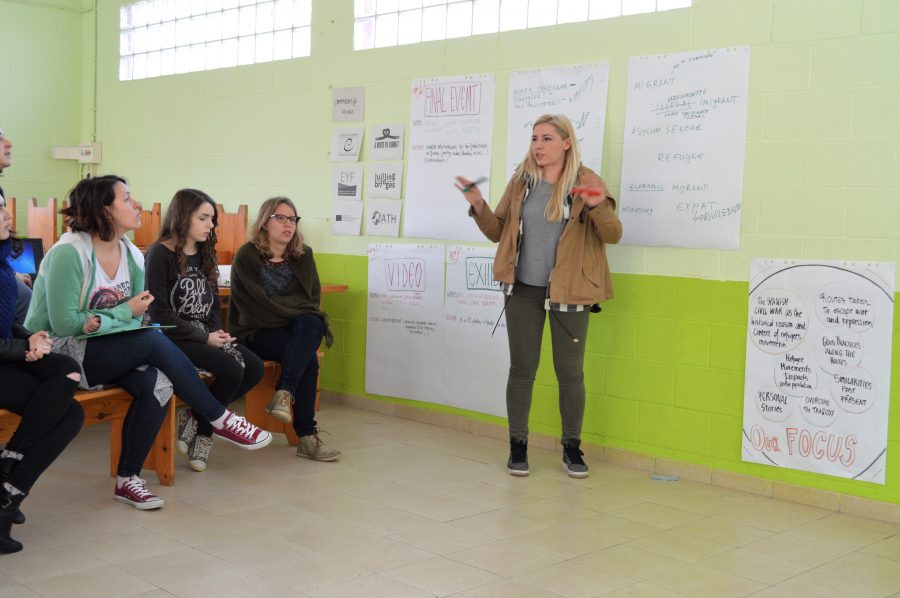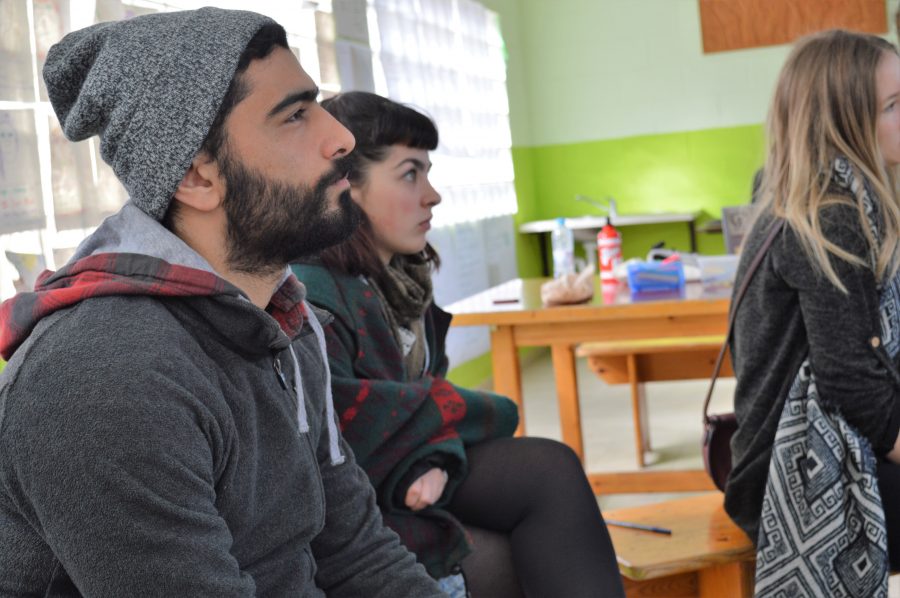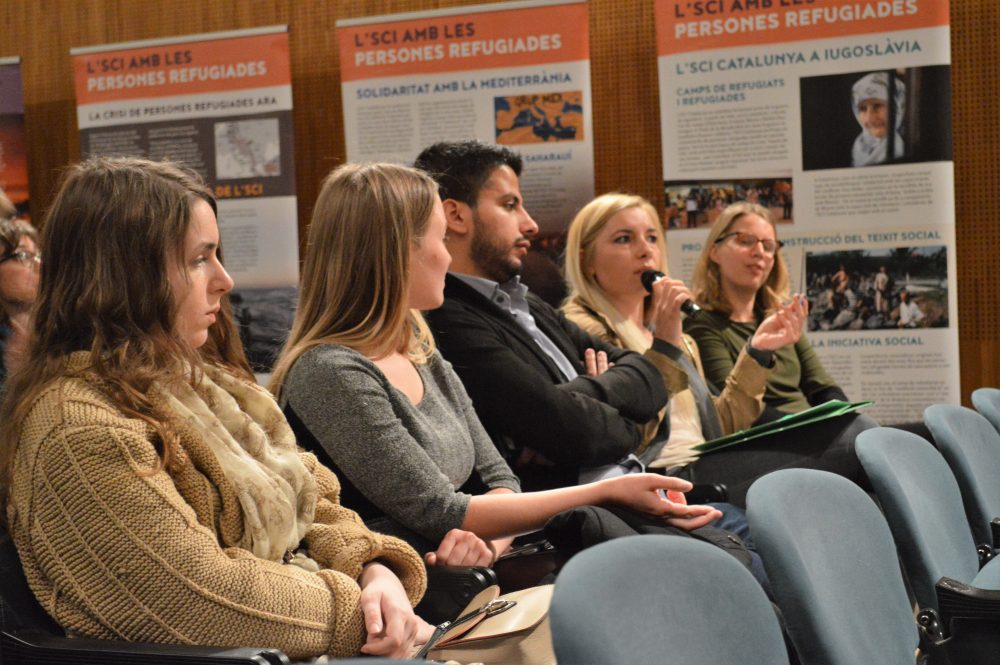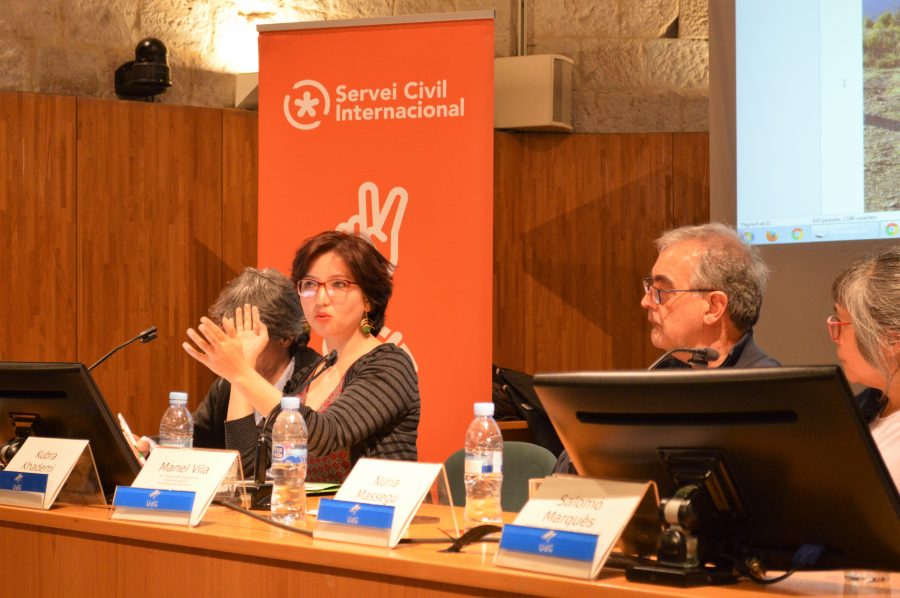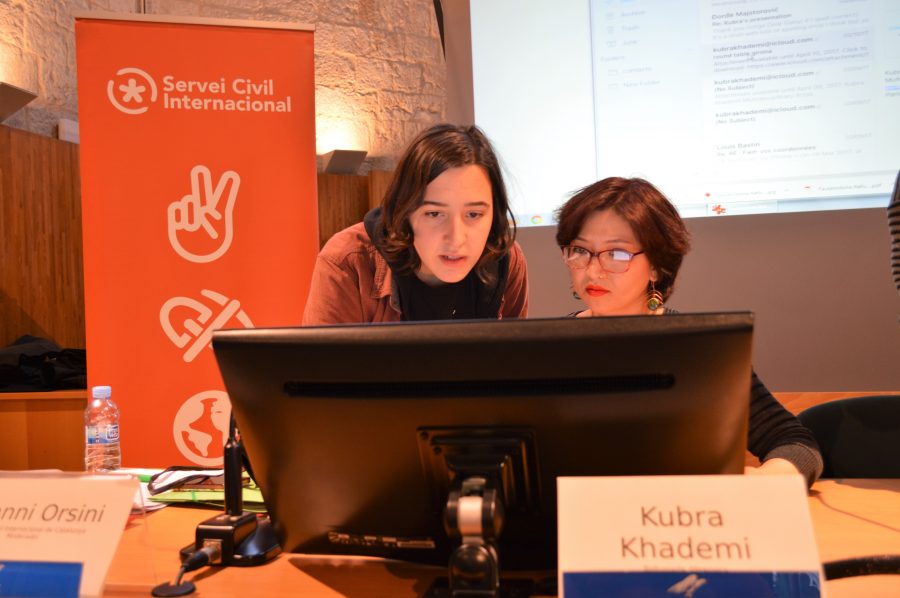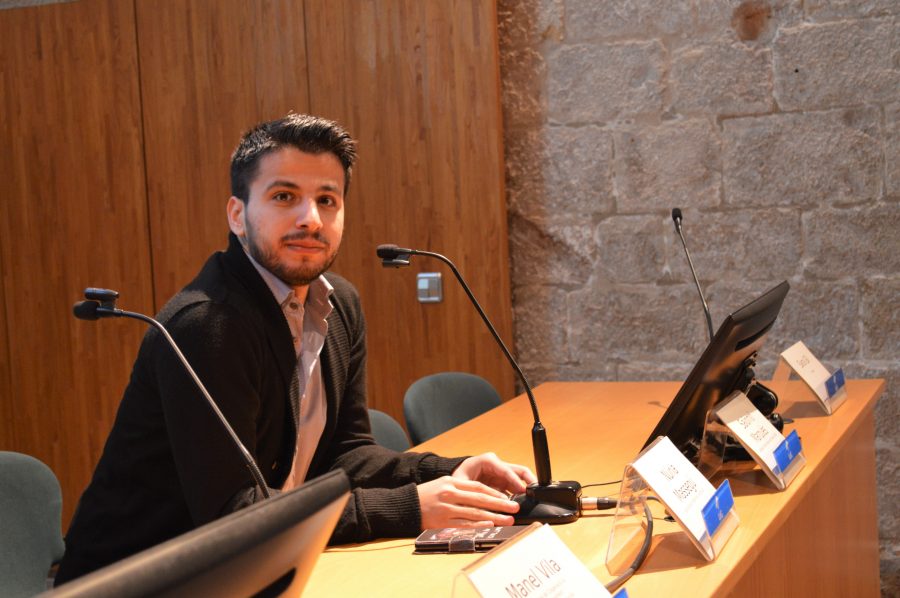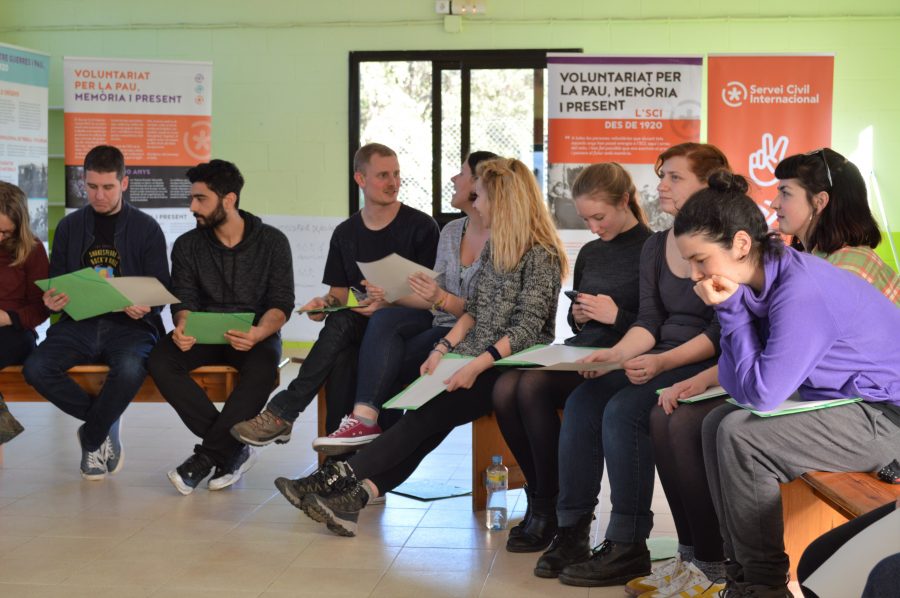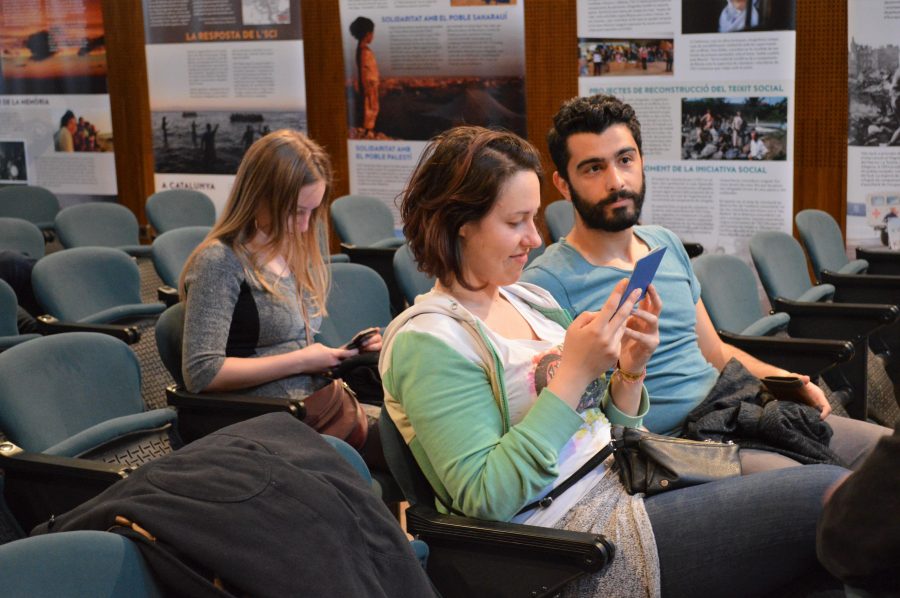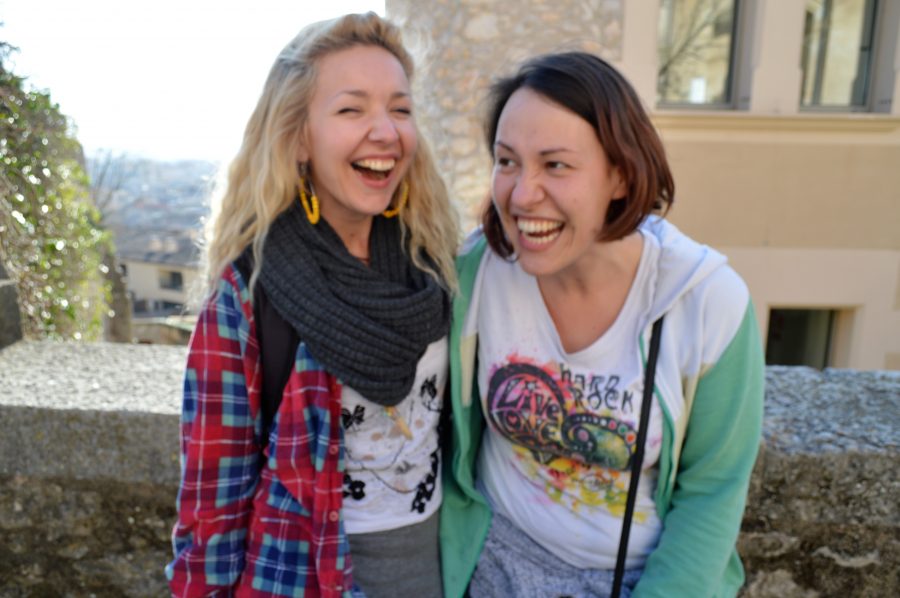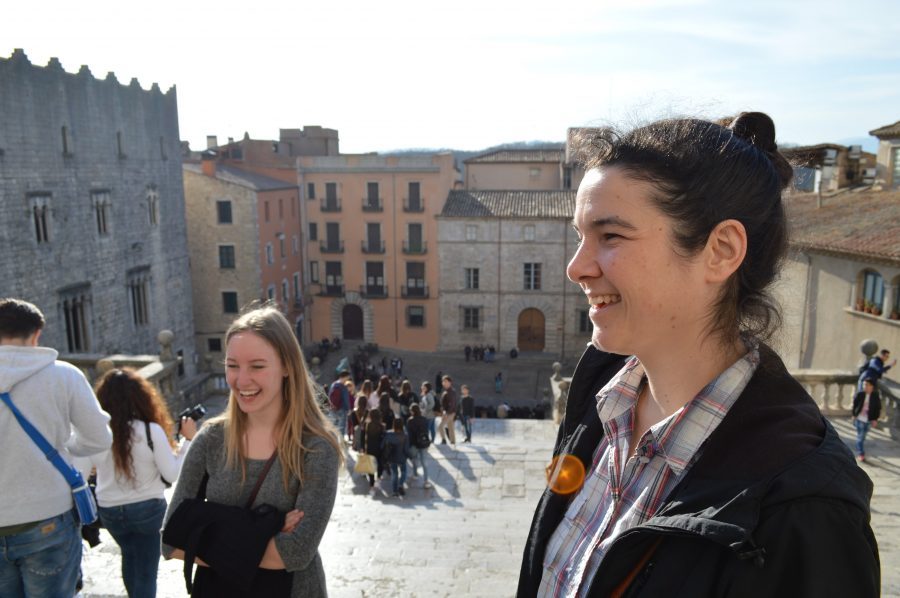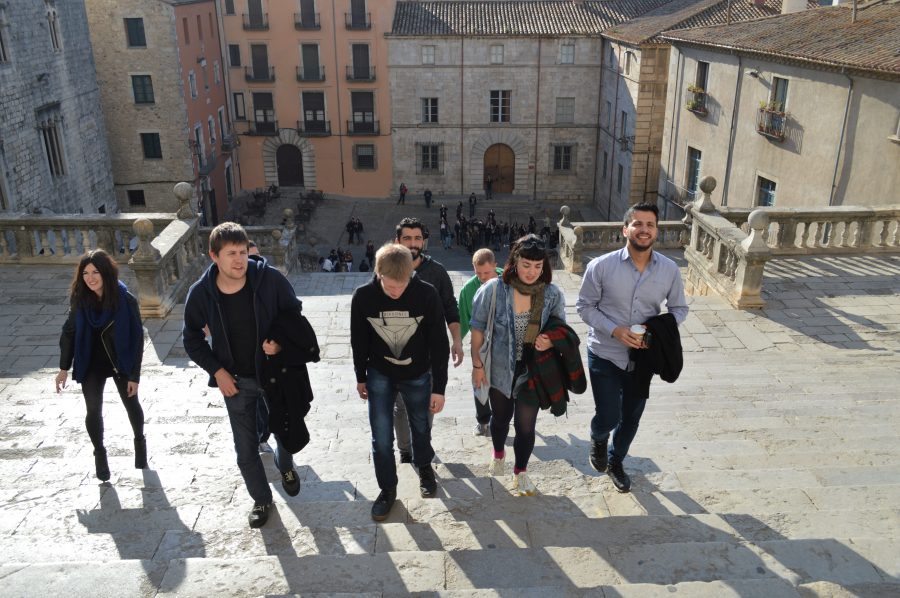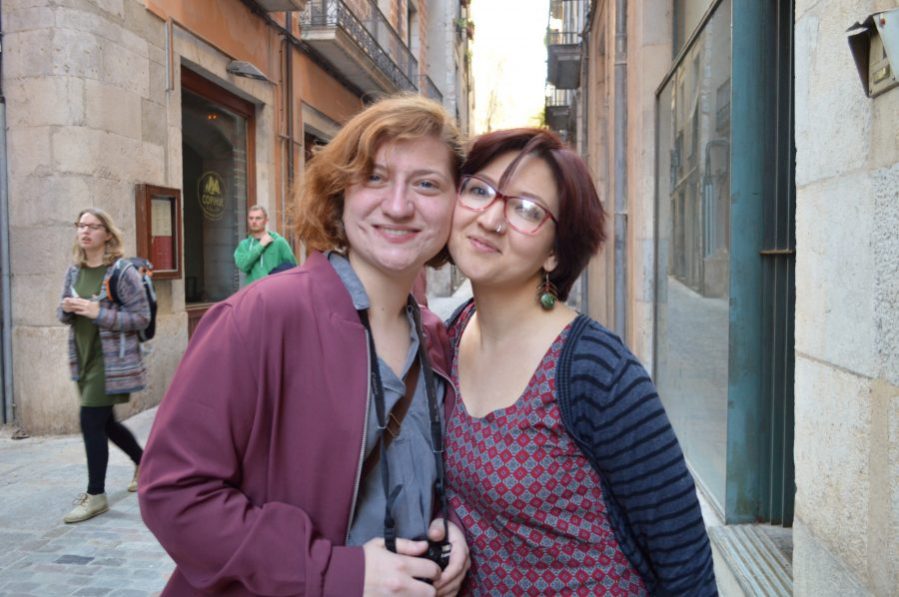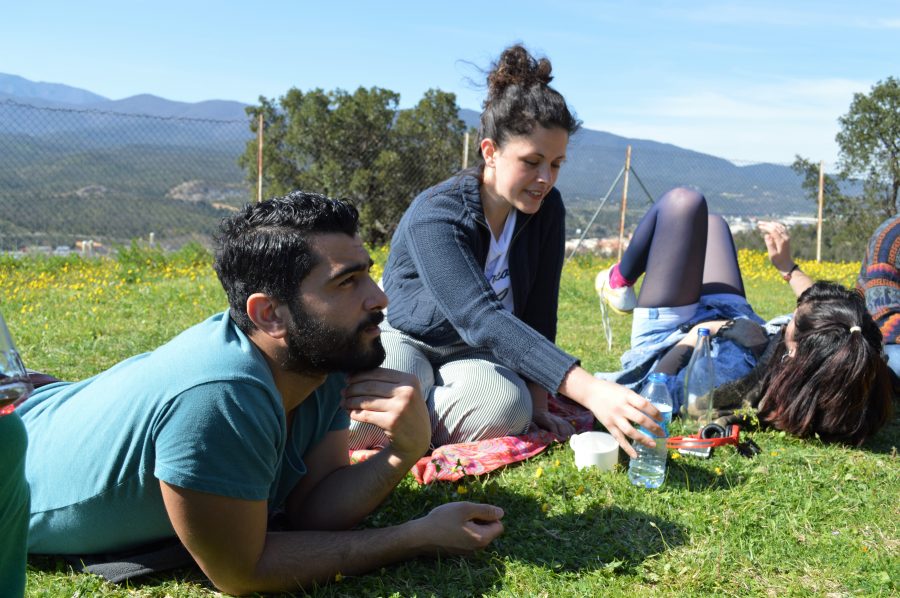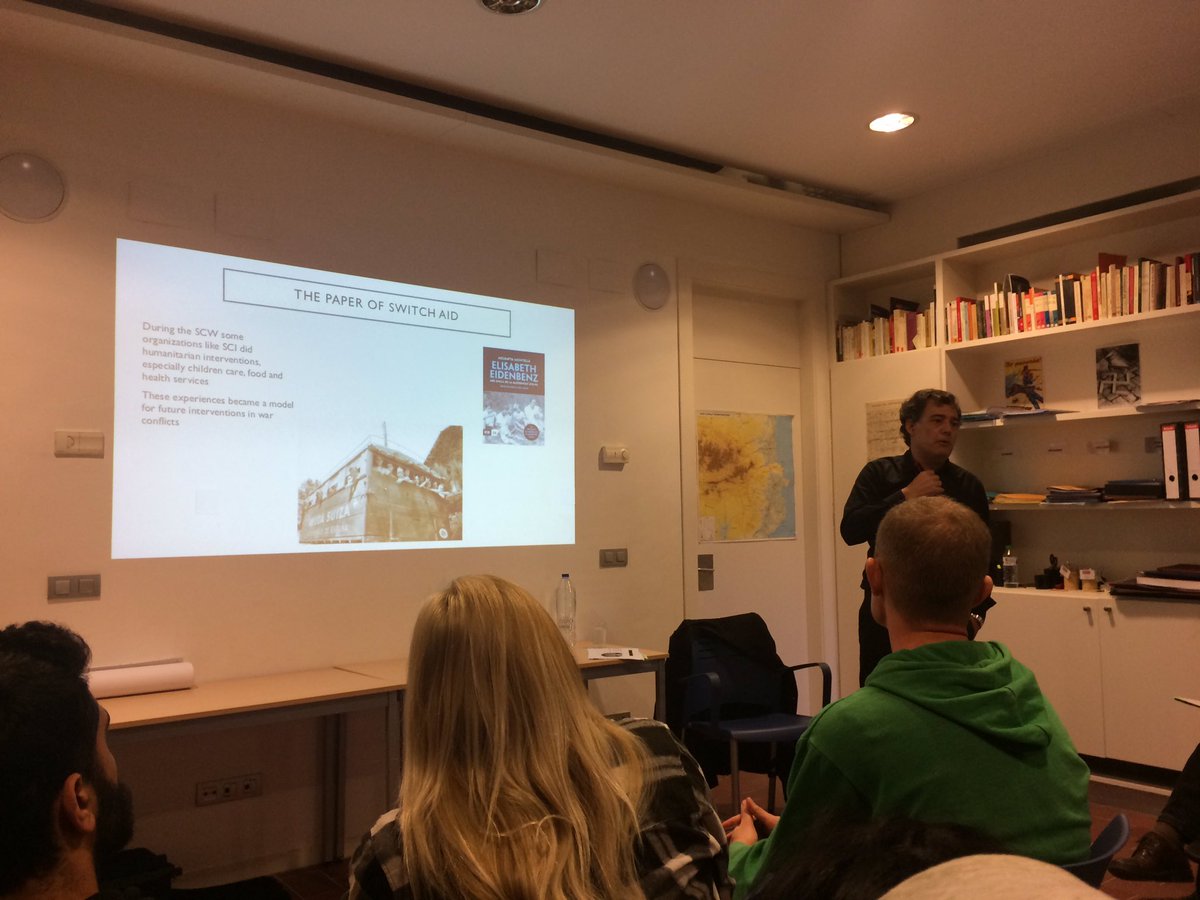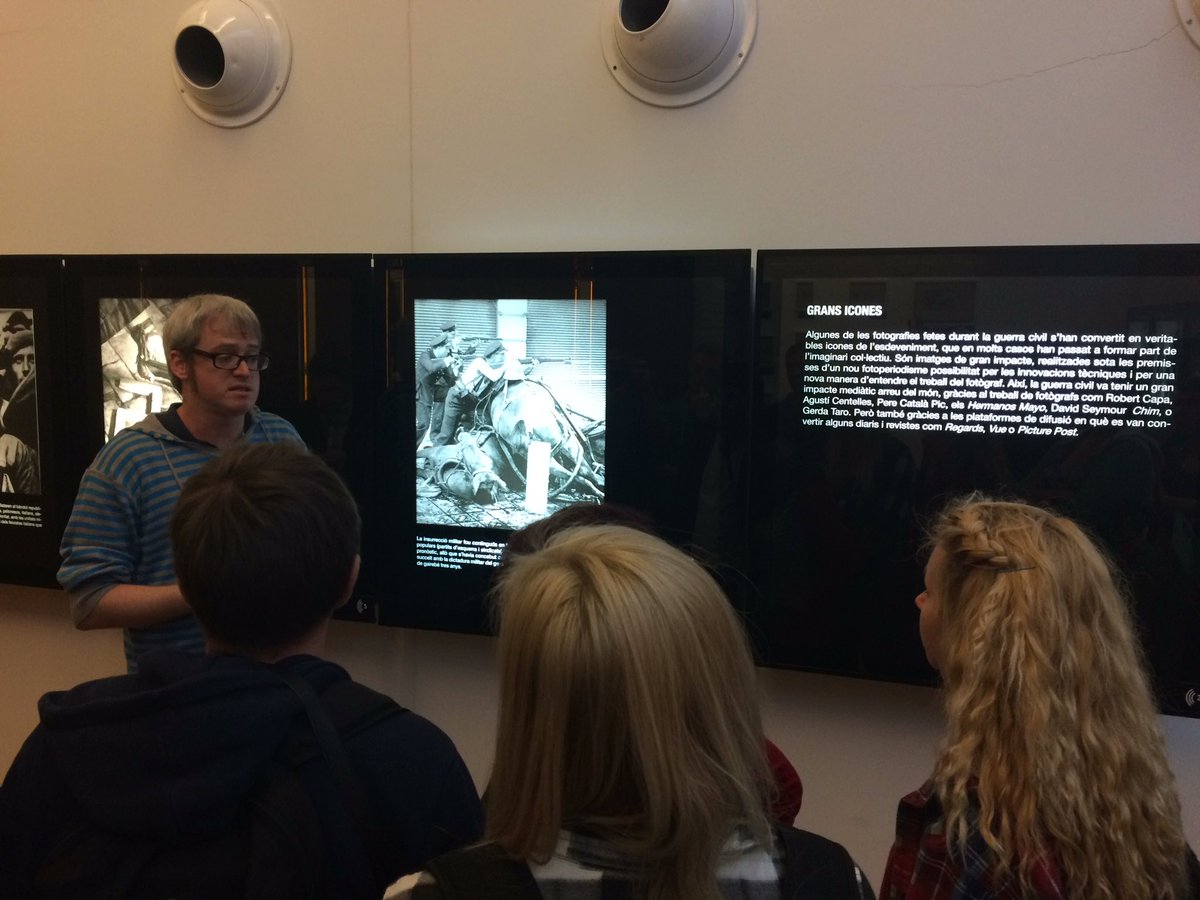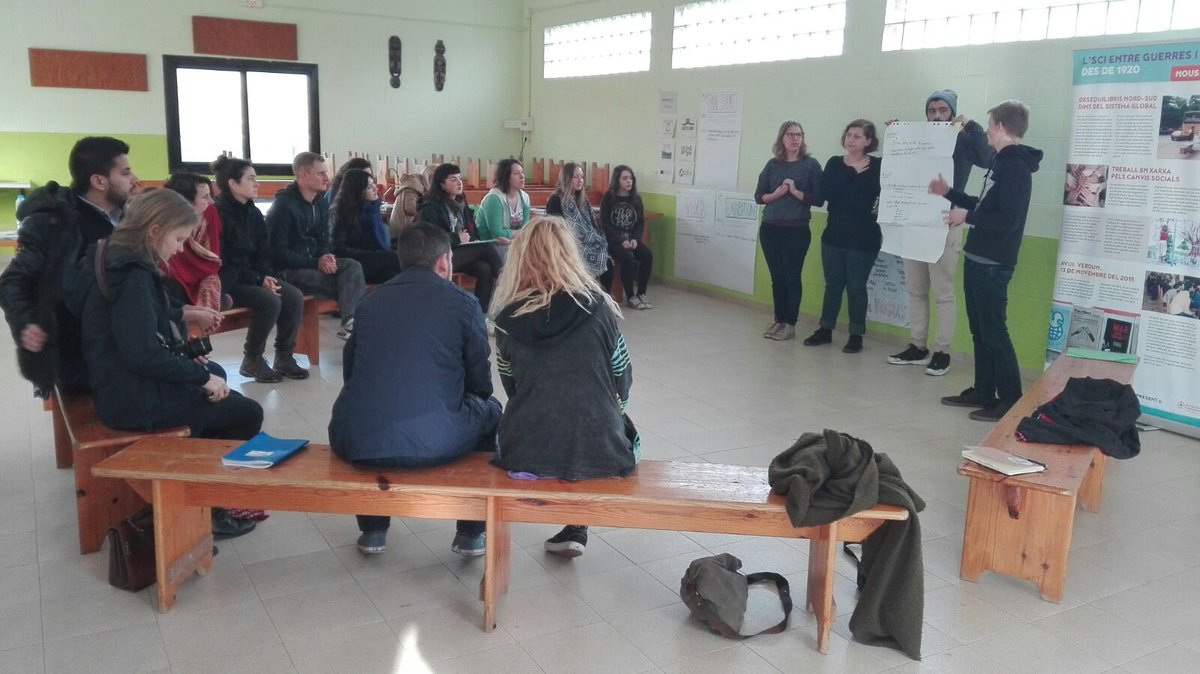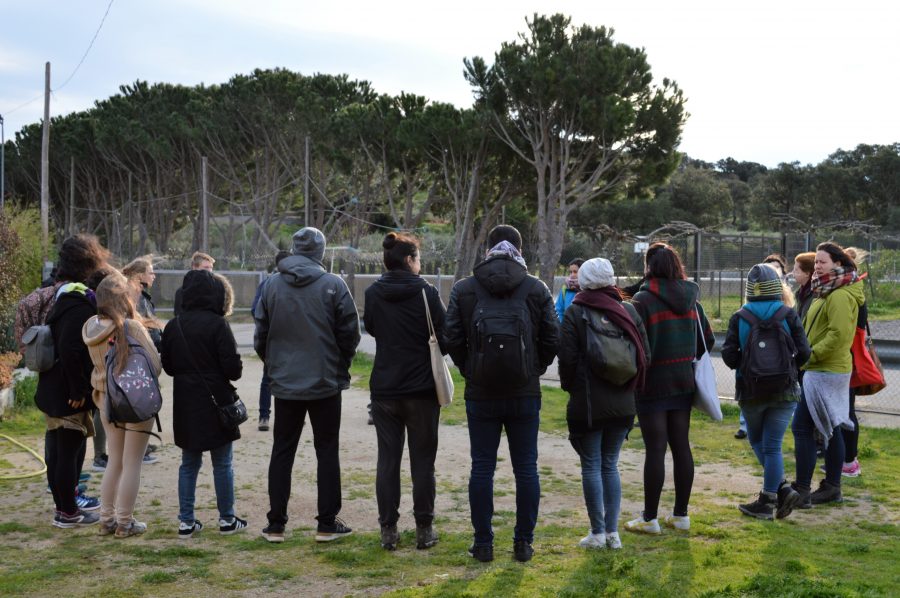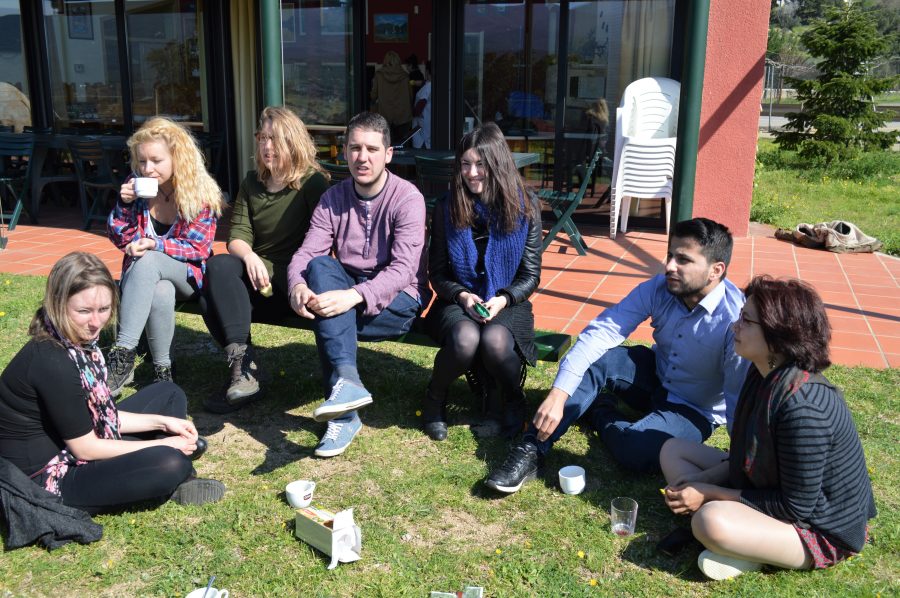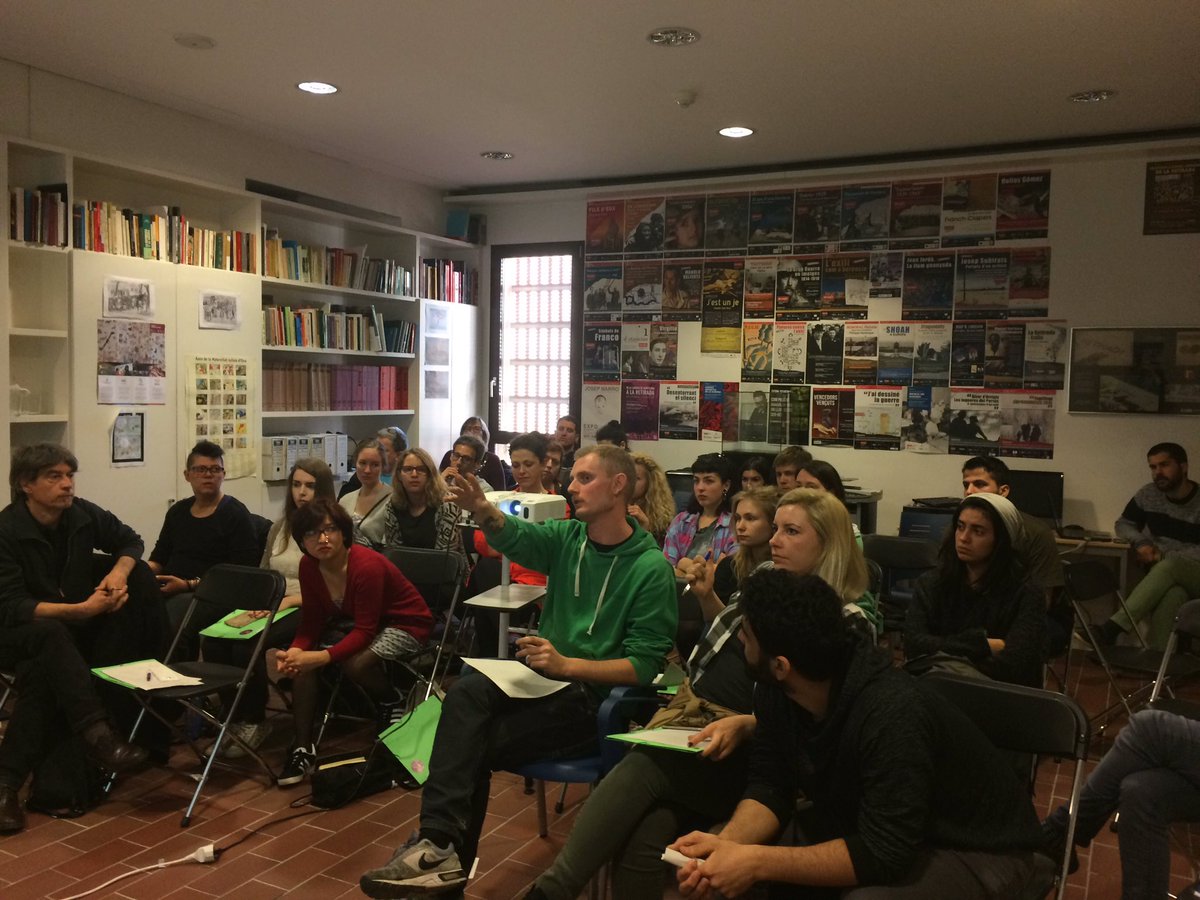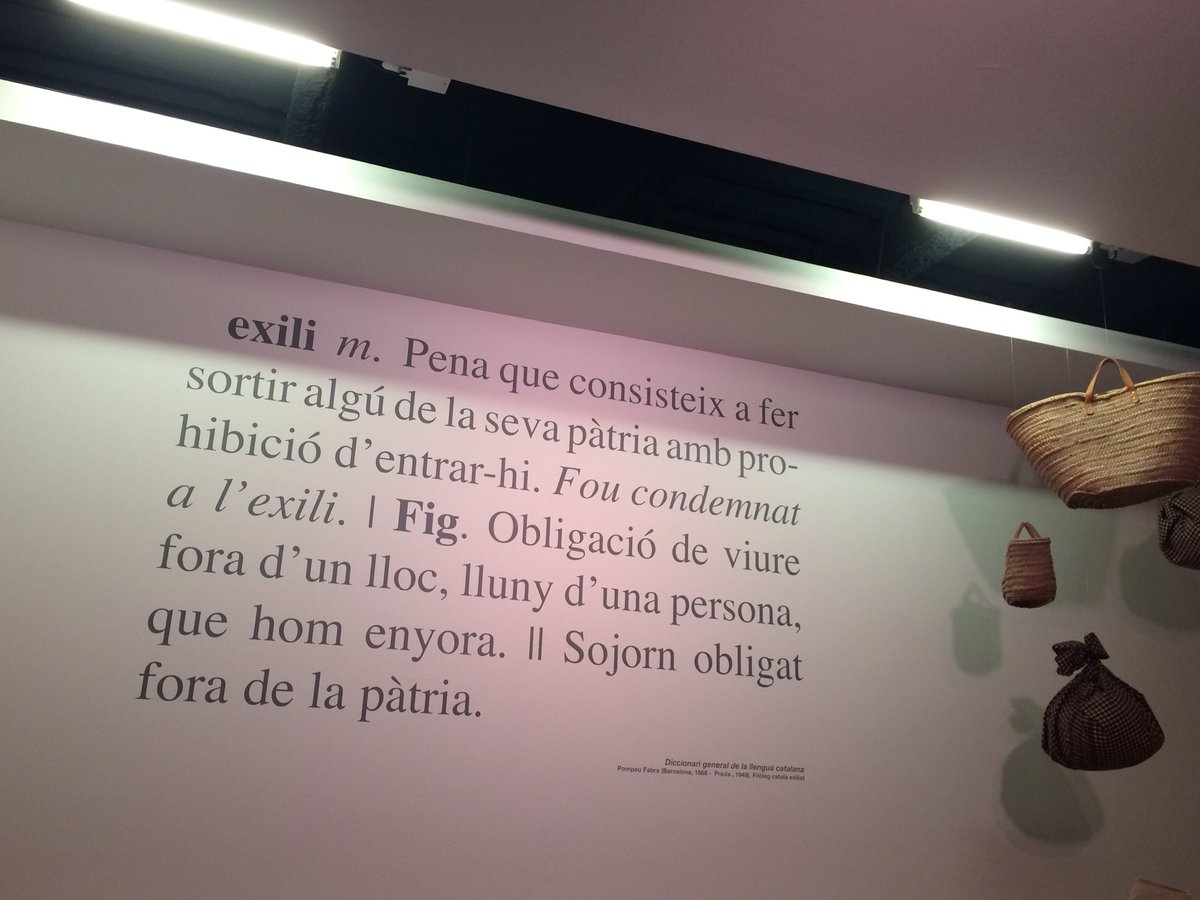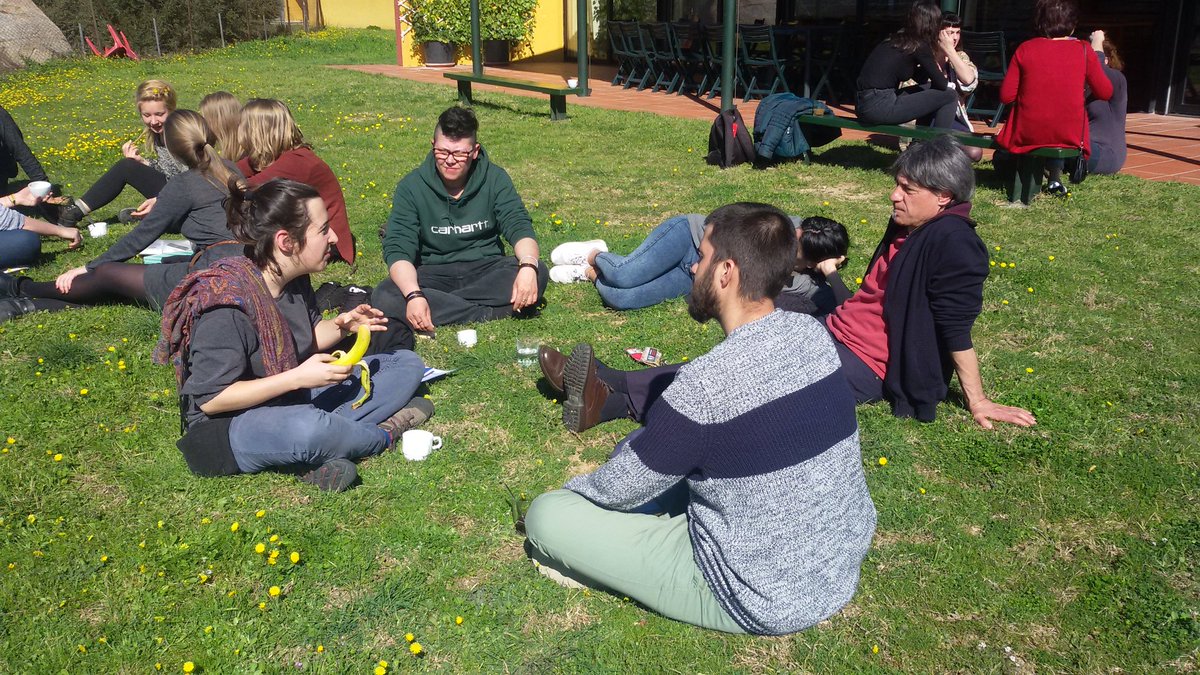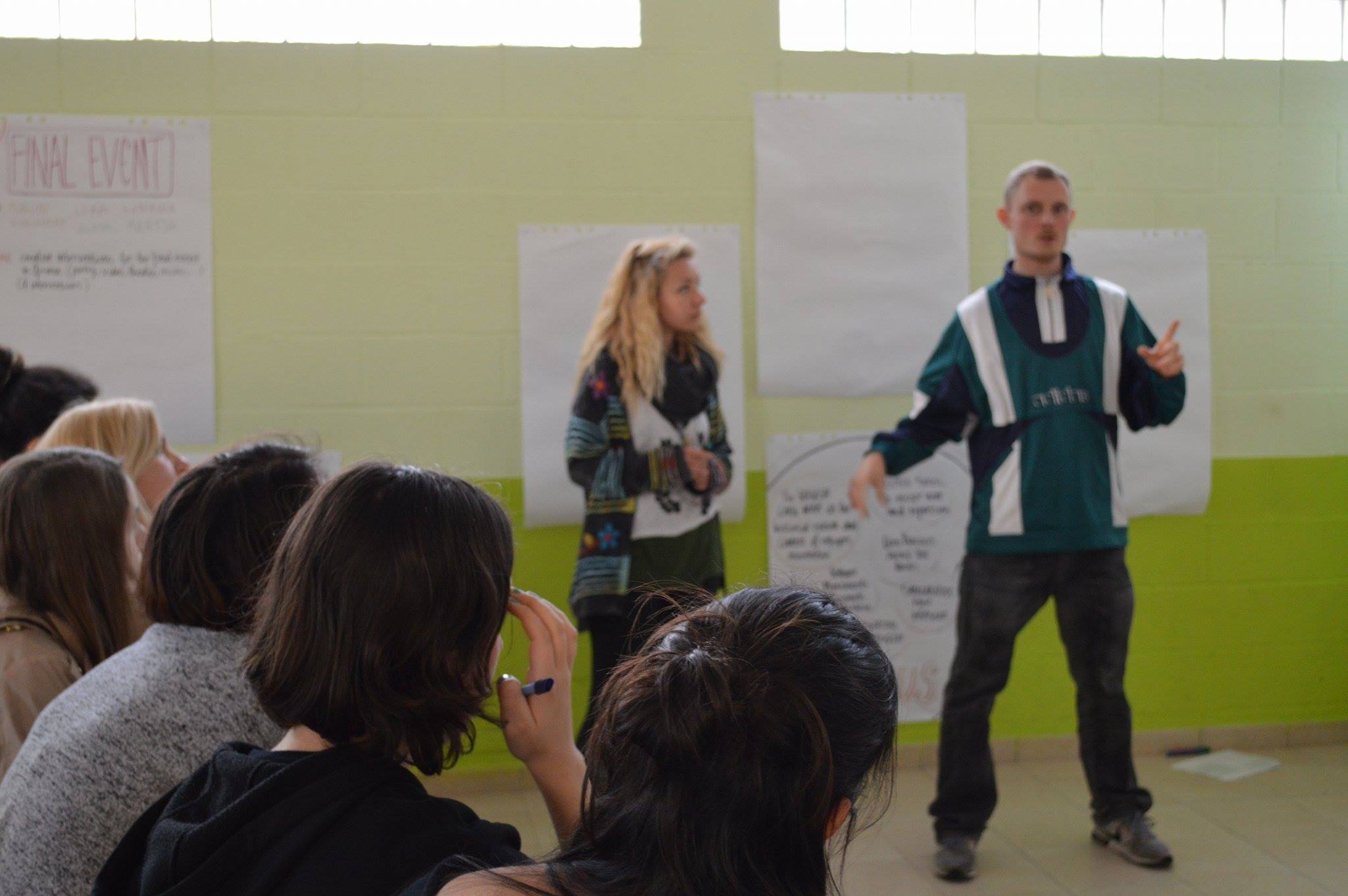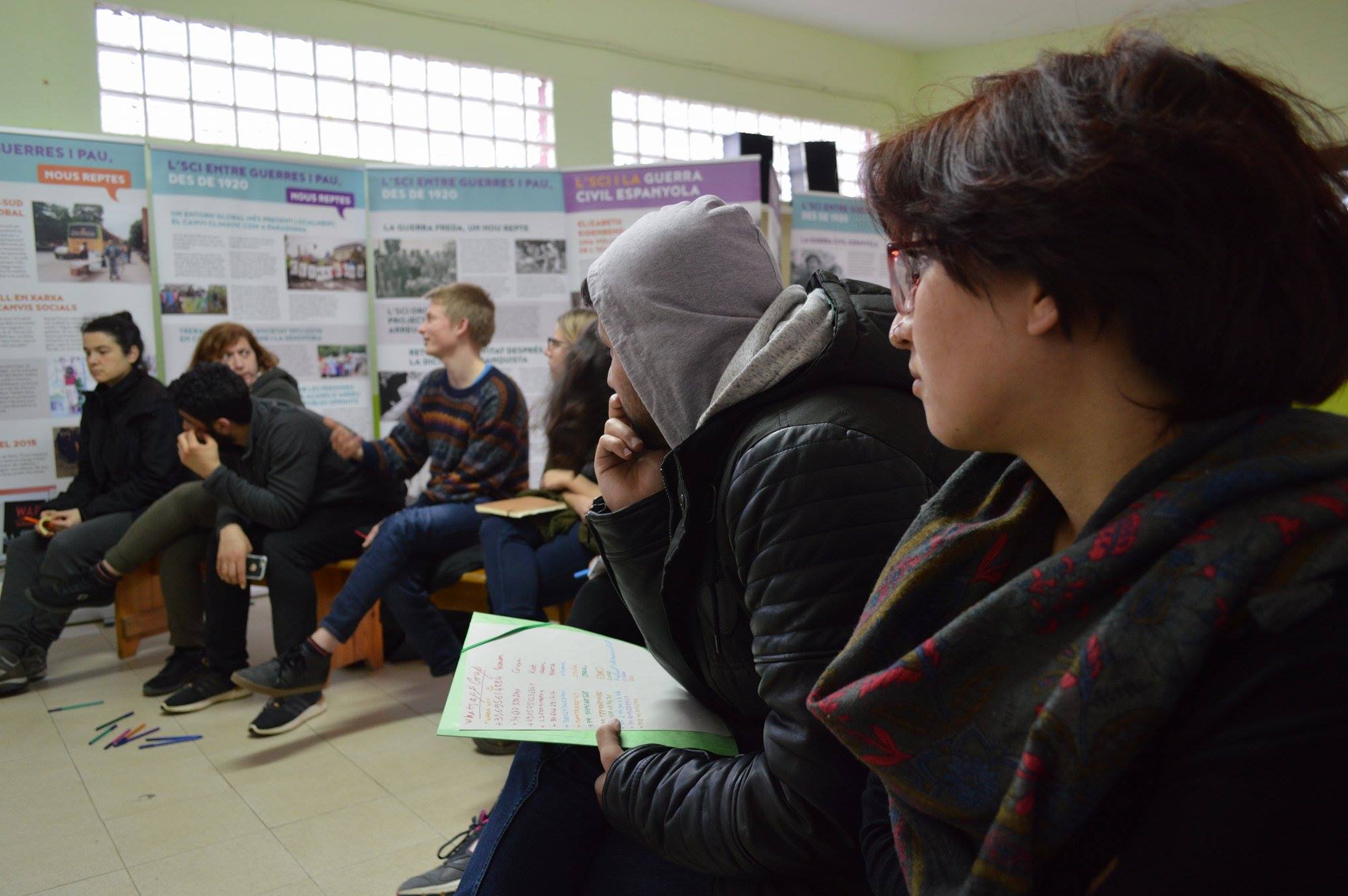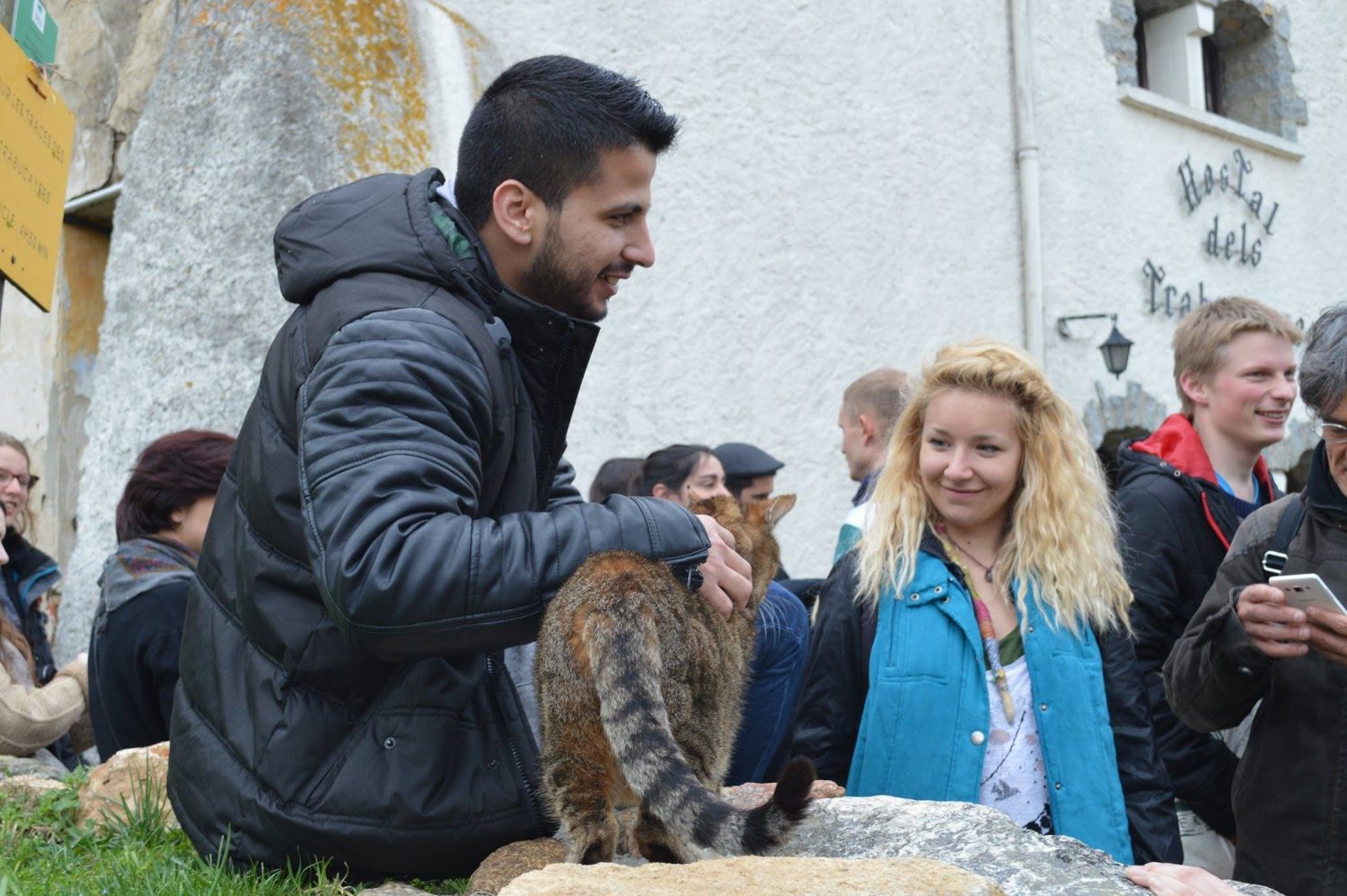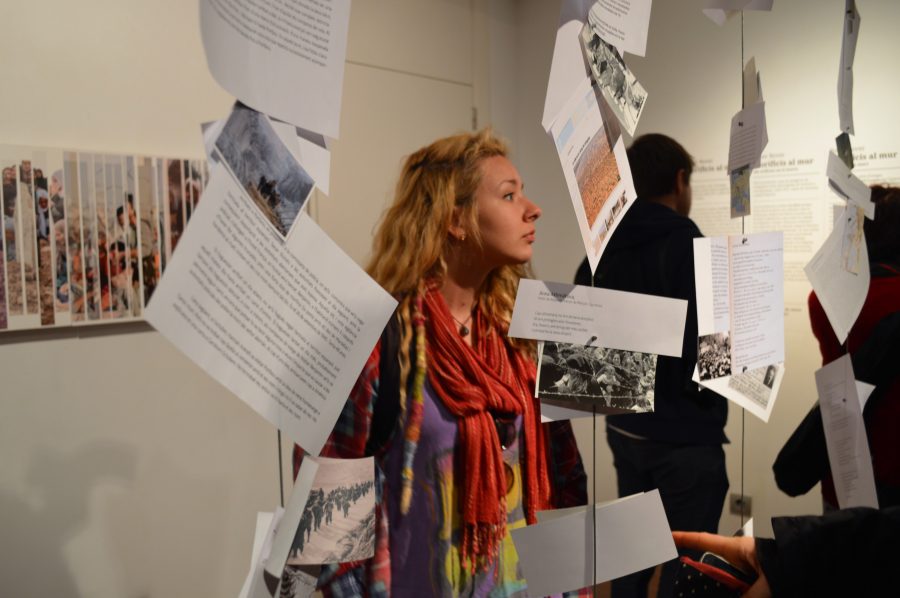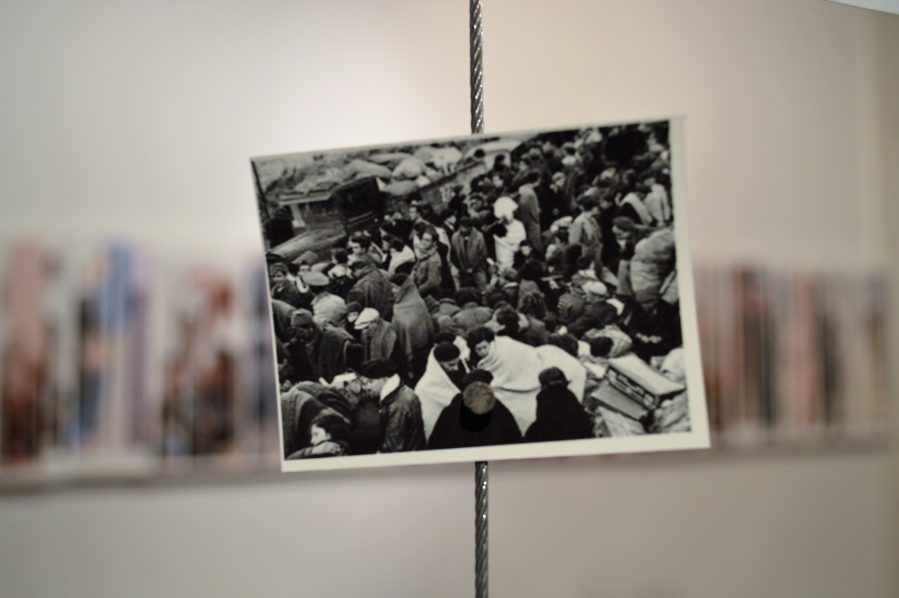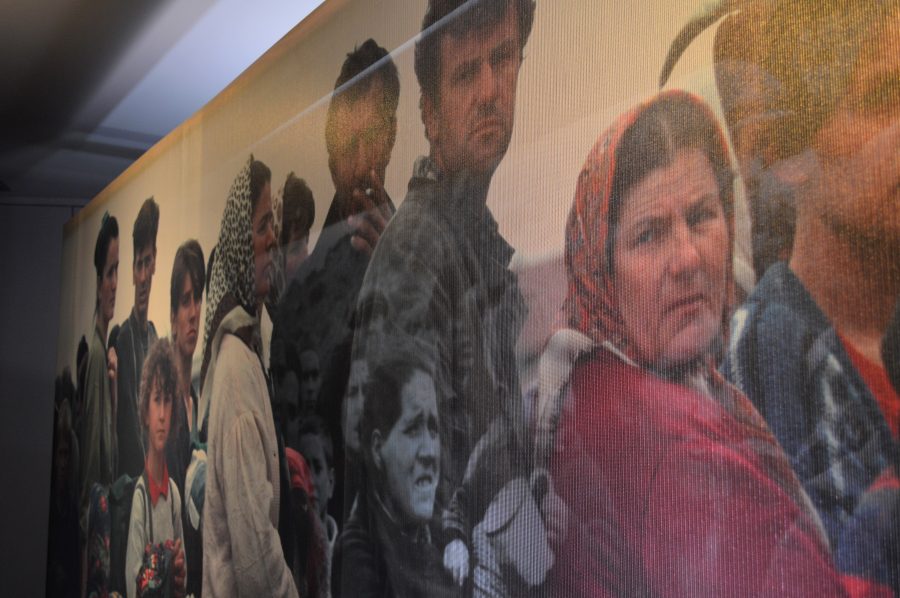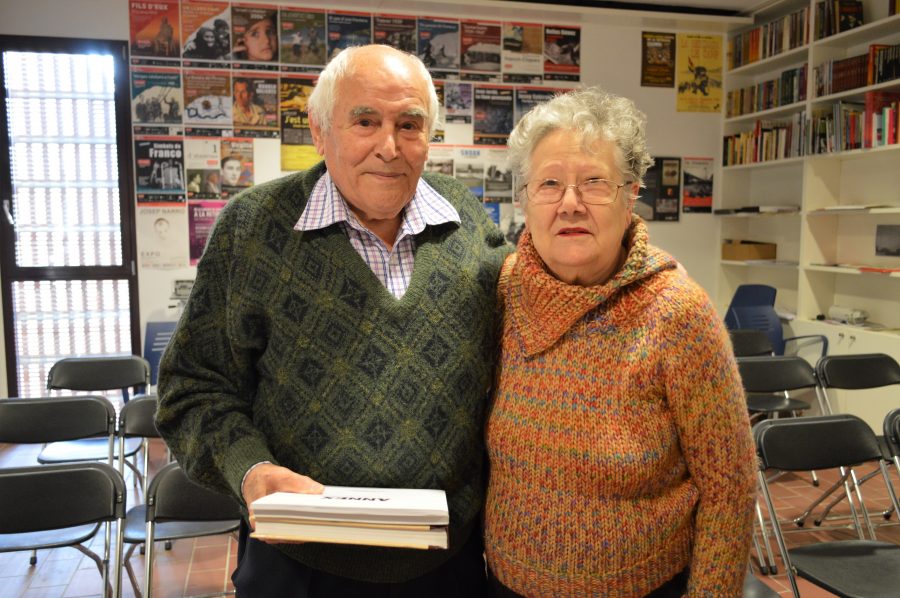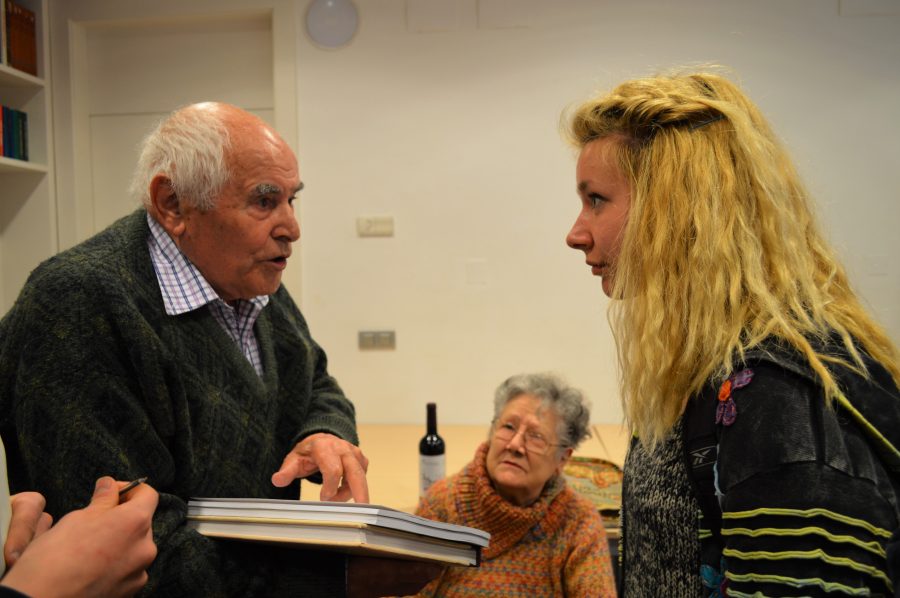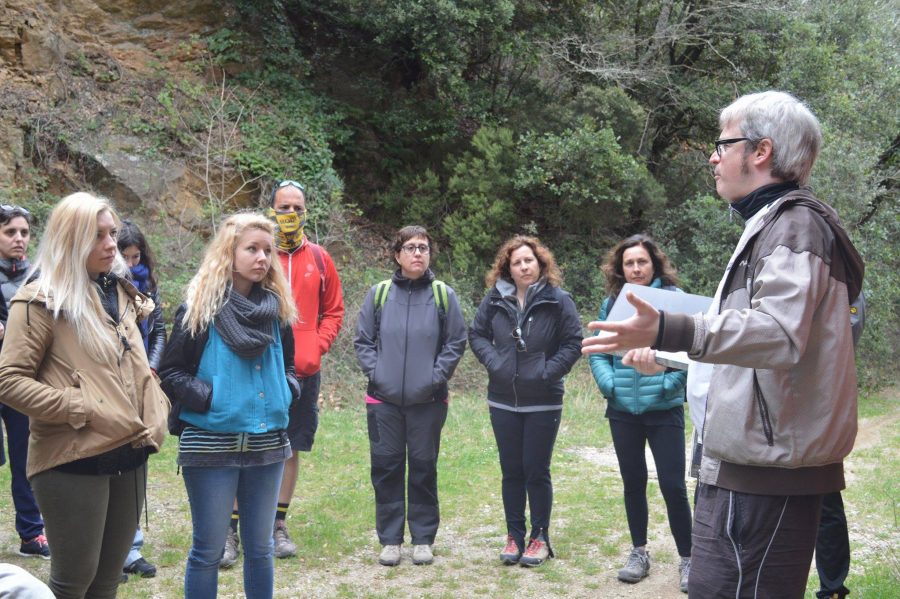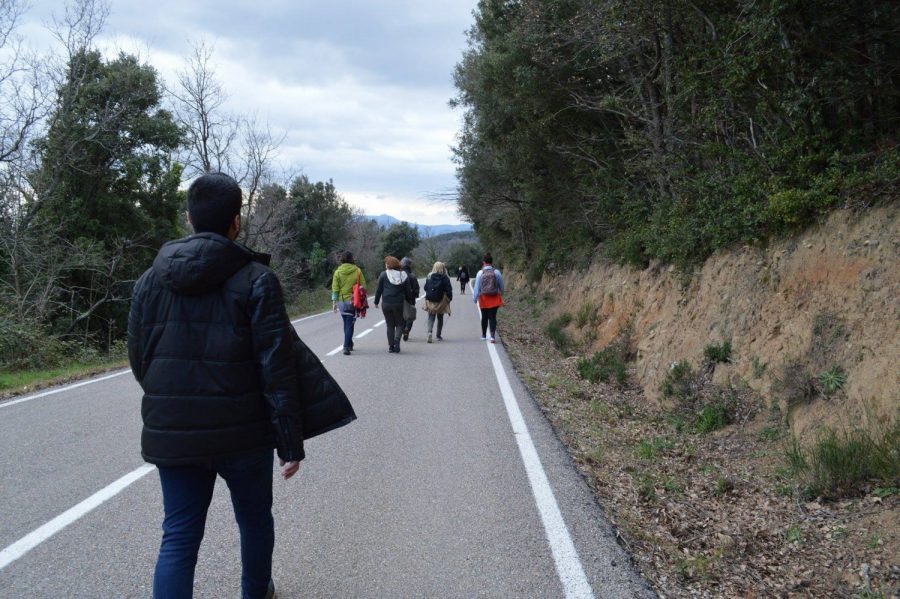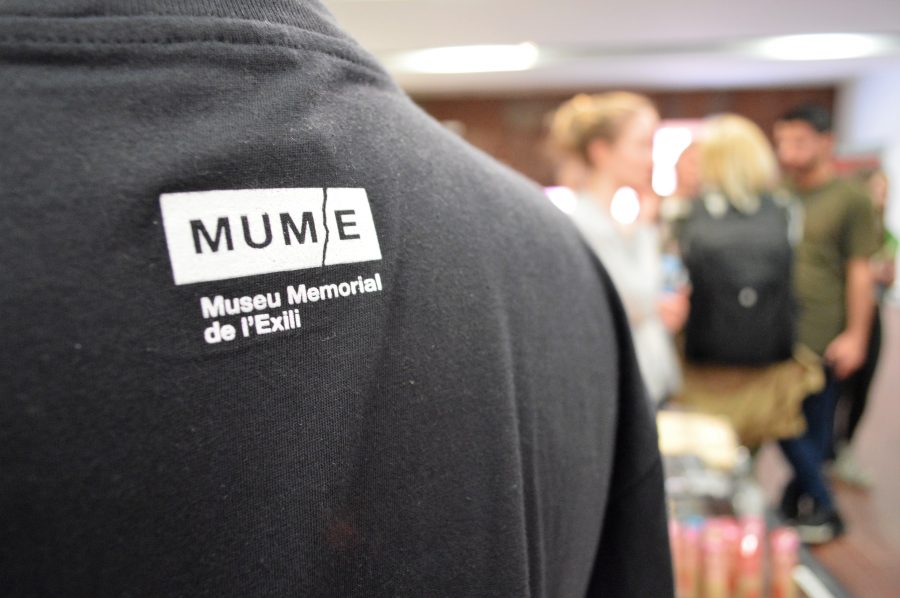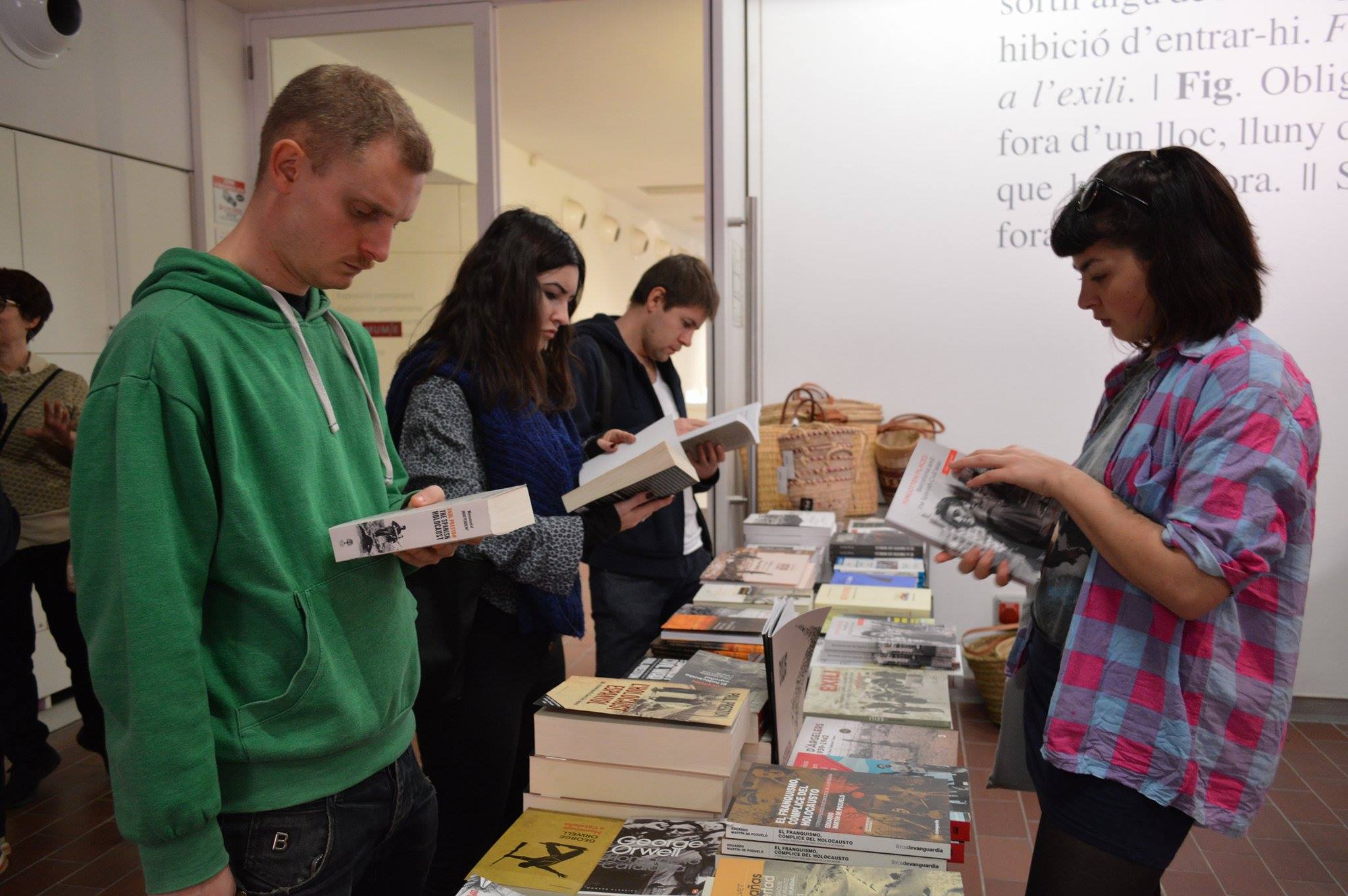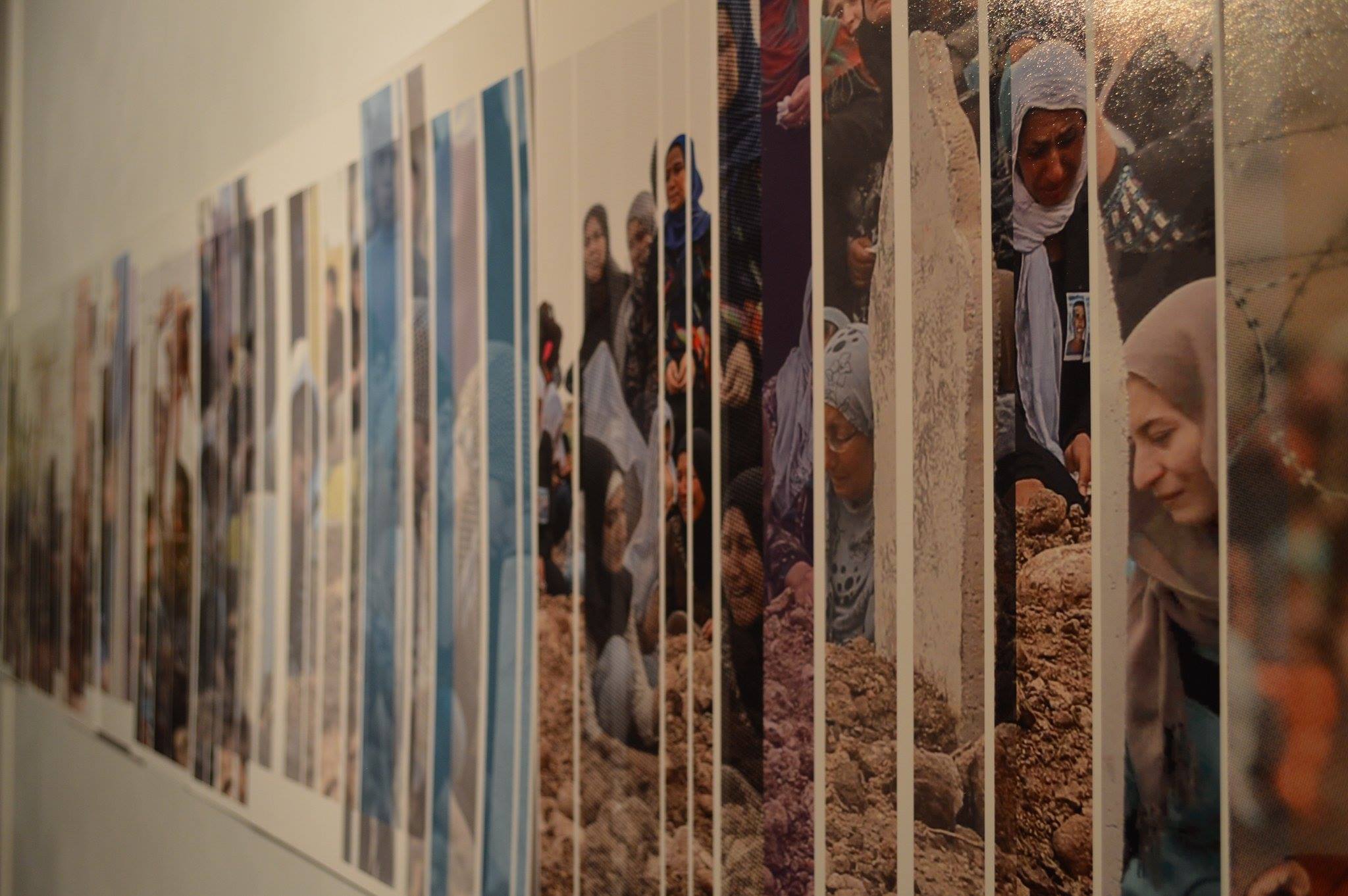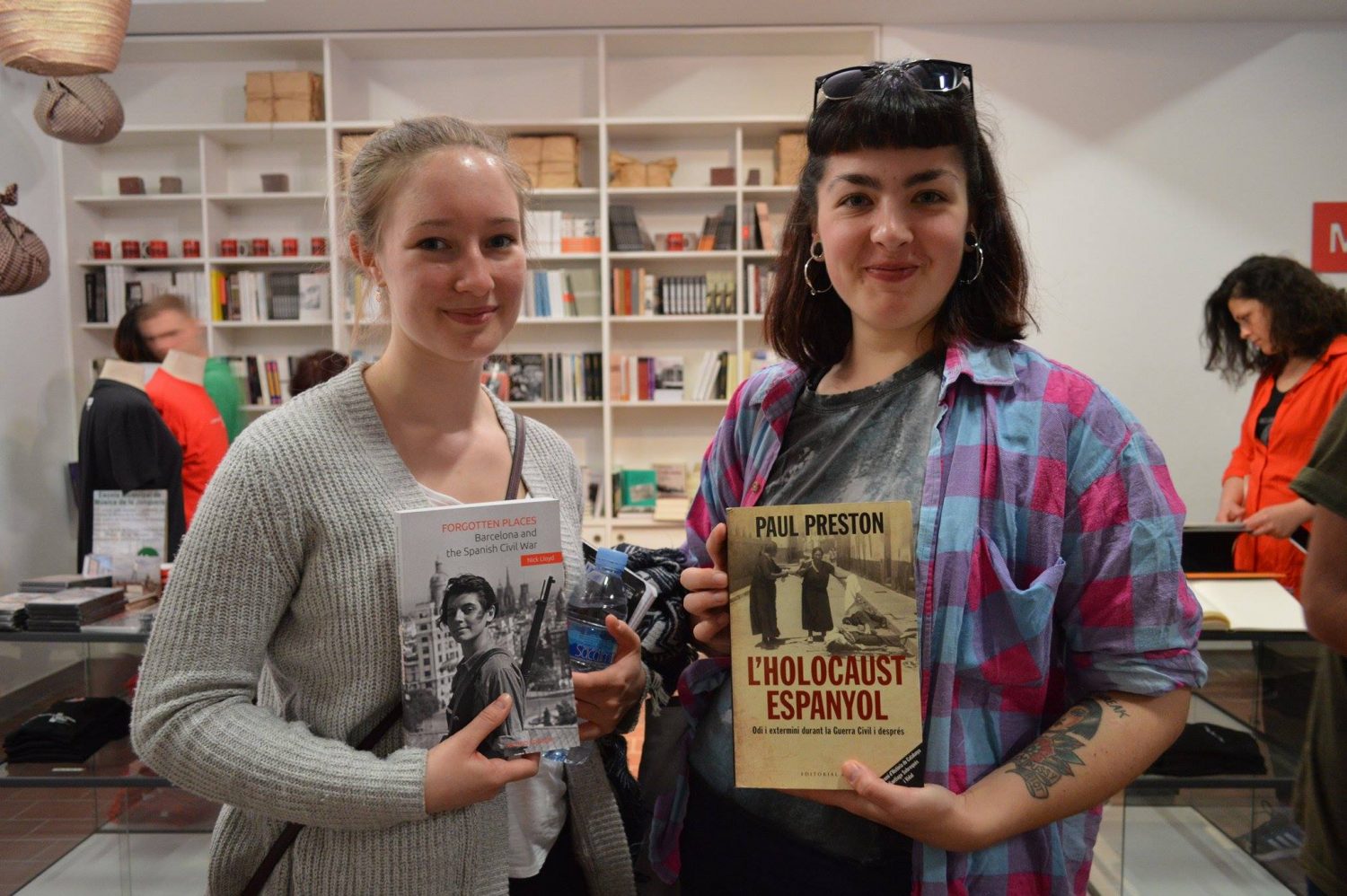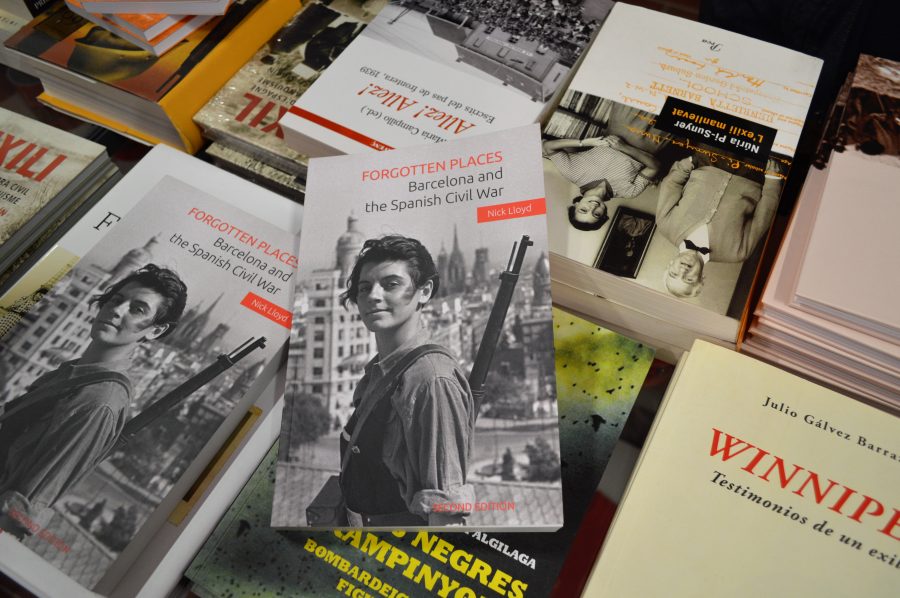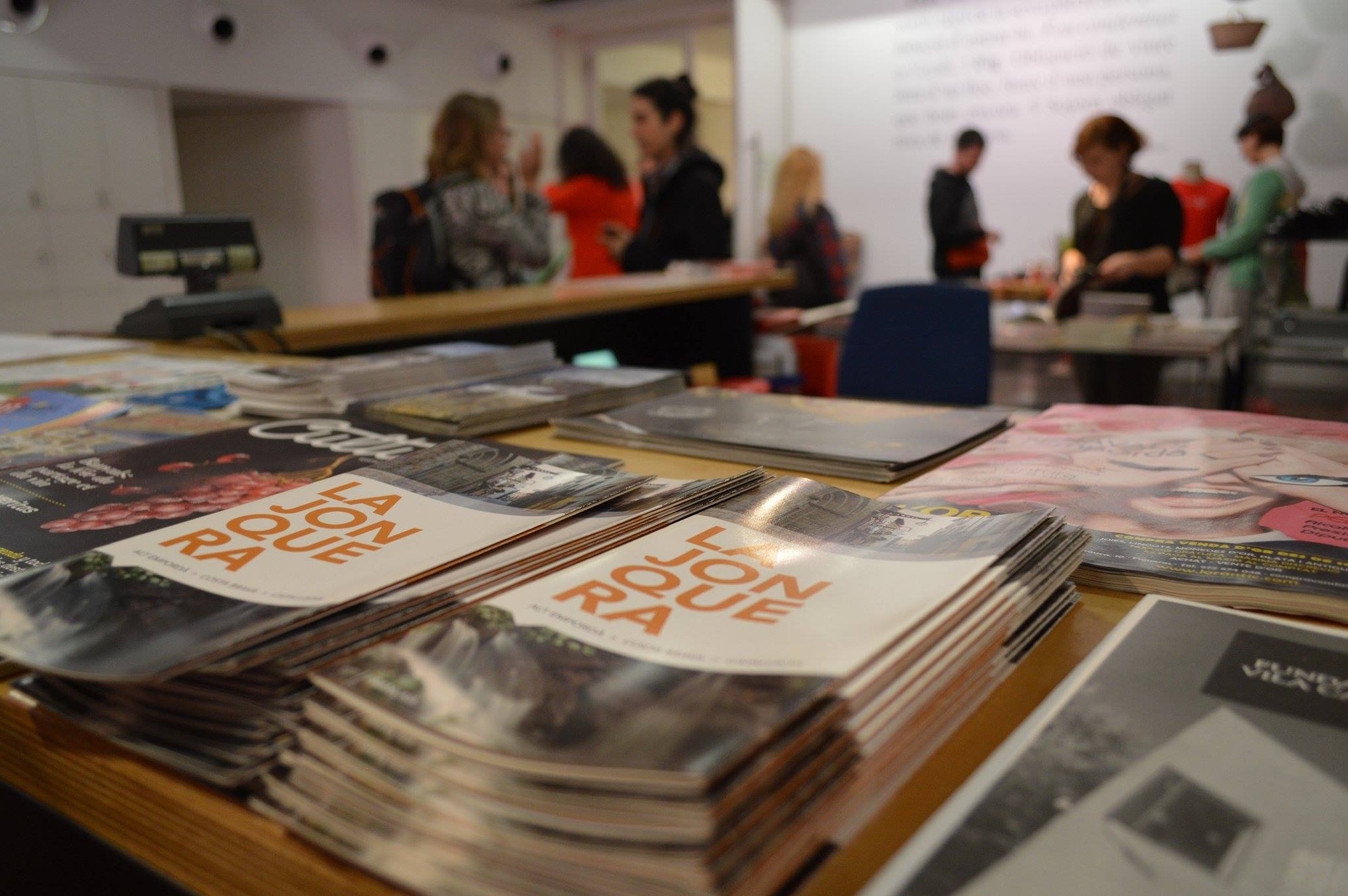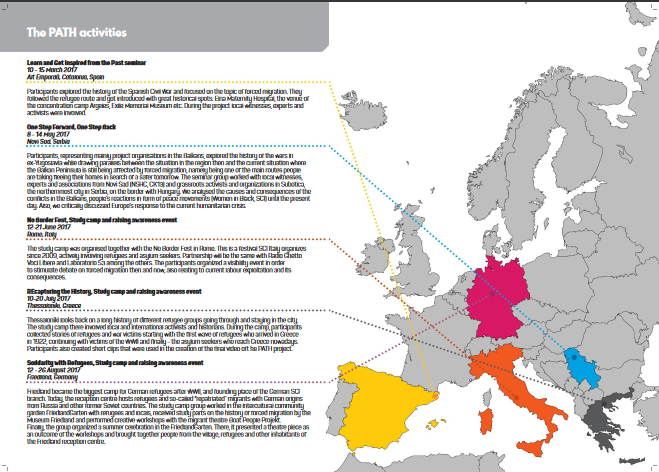
Building Bridges seminars and trainings
Seminars and training courses on working with asylum seekers and refugees play an important part in Building Bridges as they serve to establish a common understanding of the migration situation, to educate about the topic of forced migration, as well as to share experience and skills from the work with the target group, in order to initiate and improve further projects and work towards a world of peace and social justice, where all people live together with mutual respect and understanding. On this page you get an overview of the different educational opportunities that have been implemented since the beginning of Building Bridges. Have a look and get some inspiration!
Volunteering with asylum seekers
18th – 22nd June 2015, Switzerland
Building Bridges started off with this seminar aiming to exchange, share and interconnect knowledge and experience on the topic from SCI members to further collaborate and strengthen the impact and involvement within voluntary projects.
- problem analysis
- preparation and planification of projects and workcamps in the field
- preparation of local volunteers and group leaders
- methods for sensitisation of local communities
- creation of materials
- exchange of best practices
The output of the seminar were the creation of an informal working group to follow-up the work on the topic as well as the creation of a common toolkit on migration. Here you can access the actual toolkit. AS an outcome you can read here the recommendation to launch the grass-root campaign Building Bridges, that was approved at ICM2015, which aimed to raise awareness and stimulate reflection about the crisis situation and forced migration in general.
As SCI Switzerland has cooperated and implemented theater work with children from reception centers since 2009, they wanted to share their experiences within the SCI movement by the creation of a toolkit to facilitate and increase projects with forced migrants. Therefore they organised a knowledge transfer seminar from January to May 2015 with different stakeholders of various European organisations. Additionally, an online survey had been sent out to all organisations in the SCI network to learn more about their needs when working or willing to work in the field of asylum and refuge.
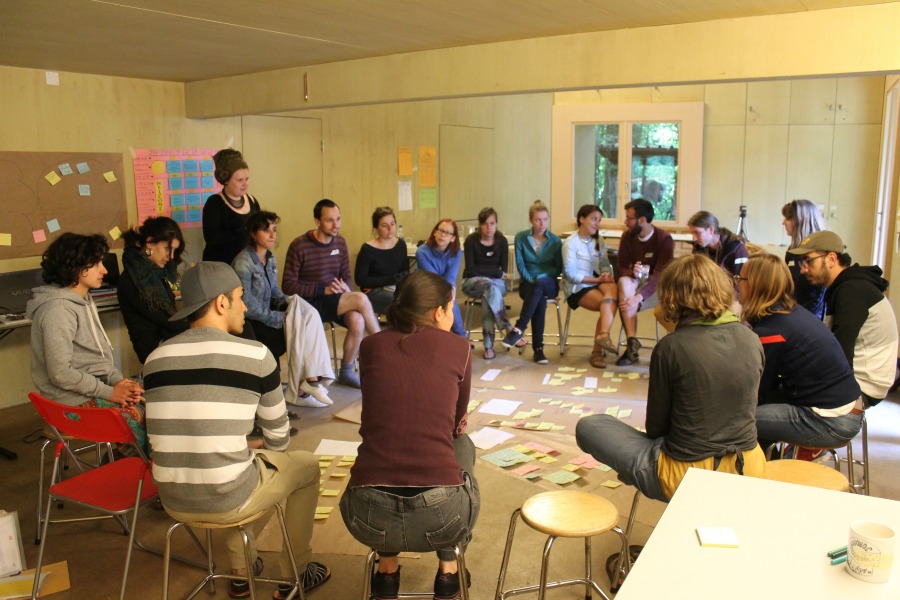
Building Bridges Training Course
11th – 17th June 2016, Switzerland
SCI’s Building Bridges training on working with asylum seekers and refugees brought together activists and volunteers from all around Europe who were interested in the theme of migration, asylum seekers and refugees, and aimed at sharing knowledge and skills in order for them to improve their projects or start new ones. The training week has been intense, with various activities that, using non-formal education methods, allowed participants to acquire tools and develop skills to apply in their communities once returned back home.
Day 1: The first day was dedicated to teambuilding activities, whereby the participants started to get to know each other and set the right mood for fruitful exchanges.
Day 2: After expressing their expectations, worries and contributions regarding the training’s program, the participants worked on clarifying the key definitions on migration and refugee issues and on researching countries of origin of refugees coming to Europe as well as their routes.The evening was dedicated to intercultural exchange, by playing creative games and sharing good food.
Day 3: It was an intense day, full of activities, and learning and sharing opportunities. In the morning, the group were involved in the role-play “Can I come in?” on dynamics between asylum seekers and officials at the borders, which raised mixed emotions and a rich debate during the debriefing session. In the afternoon the participants prepared a “Silent Exhibition”, with installations explaining the situation of asylum seekers and refugees in different European countries. Finally, the evening was dedicated to relaxing and recharging, with some games and while others watched the football!
Day 4: A field trip for the Building Bridges Training group! In the morning session, participants discussed challenges that can arise in long-term volunteering projects with asylum seekers and refugees, exchanging personal experiences and knowledge. In the afternoon, the group visited an asylum seekers’ reception center — Hospice Général — in Geneva, where they had the opportunity to ask several questions about the center’s activities and the specifics of the asylum application process in Switzerland. The rest of the day was free for the participants to discover Geneva, try fondue and have lots of fun together!
Day 5: The fifth day’s training sessions were dedicated to the topic of short-term projects (such as workcamps) involving refugees and asylum seekers, with activities including a treasure hunt and theatre plays aimed at identifying and tying to resolve possible issues that can arise during such projects. The participants were also given elements of intercultural communication, conflict transformation and non-violent communication.
Day 6: The sixth and last day of activities focused on projects for raising awareness on forced migrations. Some participants offered a simulation of interesting projects they are implementing in their local communities – such as the Human Library, the One Day Restaurant or Movie Night –, giving the right input for ensuing discussions. The group then outlined workshops and study parts, on different topics regarding migration, which can be implemented in the future. Also, the Building Bridges Toolkit and SCI’s Refugee Fund have been presented. Finally, it was time for the evaluation of the training, for drafting a personal plan on how to put the knowledge acquired during the week to good use and for the distribution of certificates.
The participants learned and exchanged about projects involving forced migrants, intercultural communication, conflict transformation and non-violent communication, they acquired tools and developed skills to apply in local communities. Here you can access the compilation of common issues and proposed solutions in projects with refugees and asylum seekers.
Many of SCI branches had already developed strong and wide experiences in the implementation of projects and activities with and for refugees and asylum seekers. These experiences had been discussed at several occasions throughout the last years at international SCI meetings. Therefore, an informal group focused on this topic and linked issues had been created following-up Building Bridges.
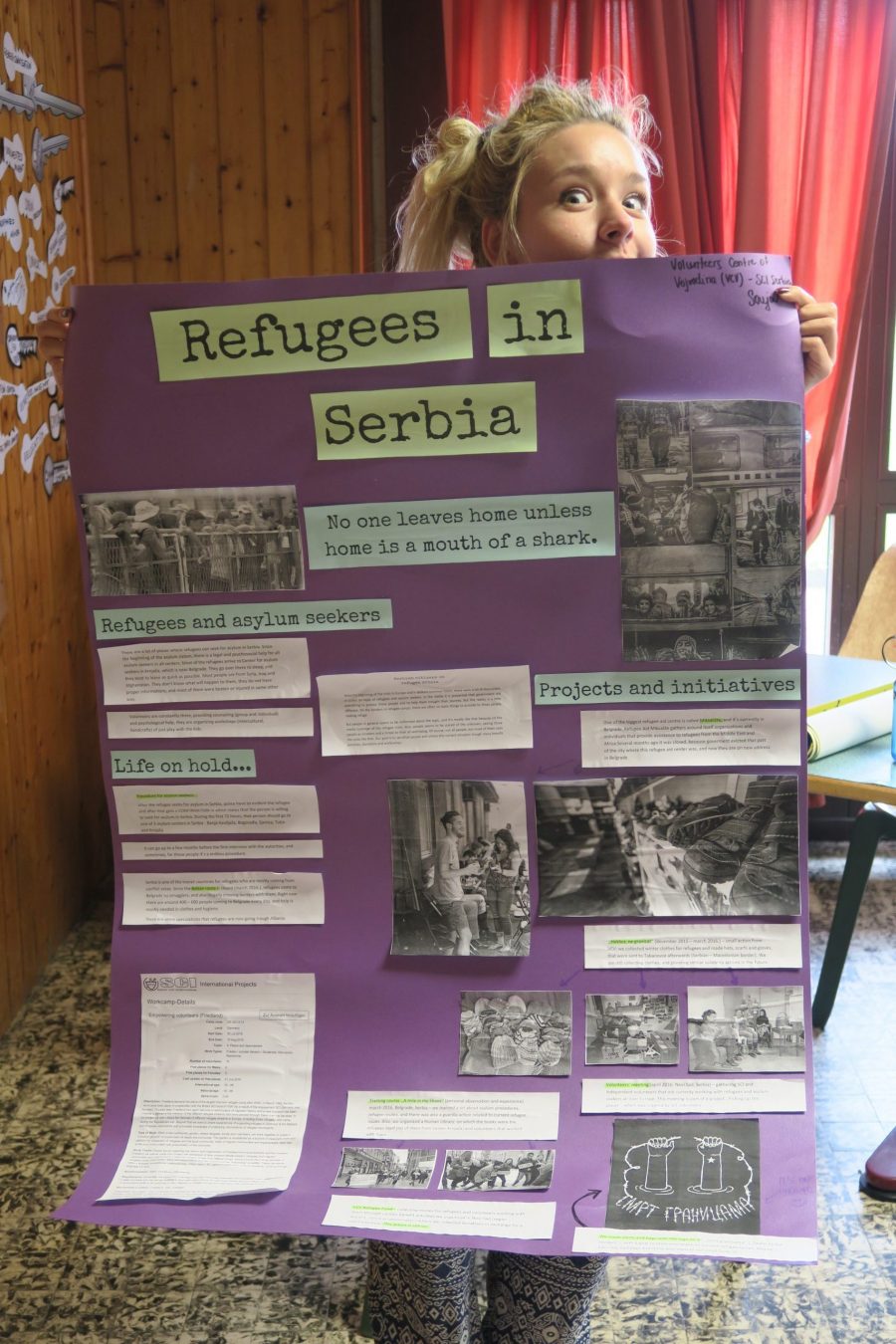
Go Visual! Creative Education about Migration
June – November 2016, Poland
In line with the developments in Europe regarding migration at the time, this project organised by OWA Poland aimed to improve the quality of international volunteer and youth activities by providing 25 participants from 10 European countries with the know-how on designing and running creative educational activities about migration, with a special emphasis on visual facilitation in this educational process.
The project was funded by the Erasmus+ Programme of the European Union and consisted of 2 elements:
- Training course for multipliers “Go visual! Creative education about migration” (7.-11.09.2016)
- Production of a visual icon dictionary on migration (November 2016).
9 SCI branches and 1 partner organisation cooperated within the project. Apart from SCI Poland, these were: VIA Belgium, CVS Bulgaria, SCI Catalunya, SCI Germany, SCI Hellas, Útilapu Hungary, VSI Ireland, SCI Italy and EstYes Estonia.
The participants learnt and shared information on how to educate young people on migration, including refugee issues, by using visual facilitation methods and other creative methodologies which have a far greater impact on the recipients than the traditional way of teaching-preaching. They explored simulation games, visualisation, theatre, but – most of all – various forms of graphic representation, including creating icons on the migration issue. In the evenings, various workshops organised by participants took place, including an impressive and colourful Afghani kite-making workshop, run by a participant from Útilapu Hálózat – SCI Hungary.
The event was intended for volunteers and staff members who act as educators: persons transferring knowledge, skills, and values to both the youth and adults, and who intend to design and run workshops and trainings on migration, using creative and brain-friendly learning methods.
During this training, SCI Poland produced the Visual Icon Dictionary on Migration – an electronic publication based on the Bikablo system of icons – which is intended for trainers and facilitators and can be used by them during their educator’s work. This Creative Commons publication is of an unique character, as it has a specific focus on migration issues and presents how to draw (visualise) in a few seconds concepts like: refugee, persecution, migration, human rights, discrimination, support, integration, etc. The icons are easy to redraw or print and can be used by educators in different countries, and allow to run exciting workshops that will be remembered by the participants. Here you find the pdf-version of the dictionary.
Recent science research confirms: our brains like images, symbols, colours, active engagement, movement – this is how we learn the best. So why not apply this knowledge to SCI educational programmes on migration and refugees? With this in mind the training was based on the lessons learnt from OWA Poland´s successful educational programme on refugees and migrants which the organisation has been running in schools for the last 19 years.
“For 5 training days, I had the chance to really explore my role as an educator on the topic of migration, being given the right tools and network to do so. It was a short time in Poland, but extremely intensive and powerful. In the end, I was sure I could take my passion for making a difference in this subject higher. A very complex topic was approached in a clever and incisive way and I am really glad I was able to be part of this.”
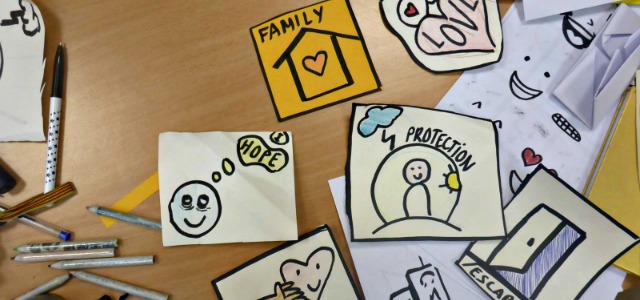
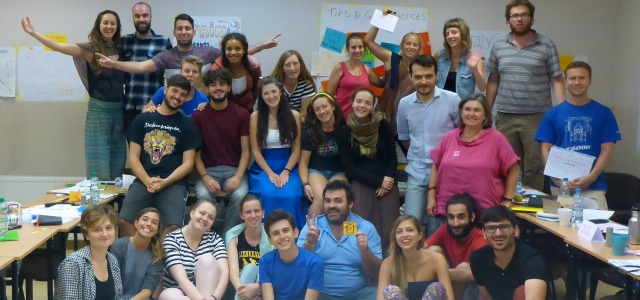
PATH and Building Bridges Meeting
18th – 21st November 2016, Hungary
As both PATH and Building Bridges focus on refugee related topics, they met for a coordination meeting in Budapest in order to identify the main areas of work and to distribute the tasks to the participants as to give direction to future work. PATH emphasized on learning lessons from forced migration in the past and Building Bridges on cooperation, knowledge sharing and raising awareness about current refugee issues.
The meeting started with an introduction to the previous project Memoric presenting the outcomes, best practices and faced challenges. Partners shared their expectations and experiences, and worked on project planning, budgeting, task division and outputs. A visit to Open Doors, a project of Útilapu Hálózat – SCI Hungary with young refugees and asylum seekers was also organised.
During the meeting the team planned the implementation of the PATH project that aimed to remember and explore the history by inviting participants to relive stories of people who have walked a long path, seeking refugee back then and nowadays. How to use lessons learnt to (re)shape our current reality?
The Building Bridges team started out evaluating the activities done so far. For instance the Building Bridges labelled workcamps, trainings, projects supported by the Refugee Fund as well as the Building Bridges Toolkit. The decision was taken to intensify the promotion of Building Bridges and to keep on distributing the Toolkit within and beyond the SCI movement, with the addition of the possibility for the users of the Toolkit to upload content on it.
Throughout the activities, the participants have been working with media to cover the experience of 3 generations with forced migration and present their stories and good practices that can lead to innovations in our diverse society. Promotional material was filmed for both Building Bridges and PATH. Watch the videos on our YouTube Channel.
Today one of the biggest challenges for Europe is the forced migration of people fleeing from conflict zones and looking for a safe and better life. The numbers are rapidly growing thus threatening the stability of local communities and economies. Societies are being polarized and the growth of right wing extremism is creating another threat for European democracies. With this project, SCI proposed a concept for defining and understanding current tendencies of forced migration using lessons from the past and thus remembrance as an inspiration for present and future peace activism.
The objectives of the PATH – Peace activism through lessons from history of forced migration project were:
- remembrance of historical events such as the aftermath of WWI, Spanish Civil War and Yugoslav war;
- drawing parallels between past and current conflicts focusing on the reasons, specifics and consequences of forced migration;
- raising awareness within local communities on the topic;
- providing space for networking for future development on actions for peace building and conflict and forced migration prevention;
- promoting peace, anti-militarism and non-violence and encouraging active participation at European Level
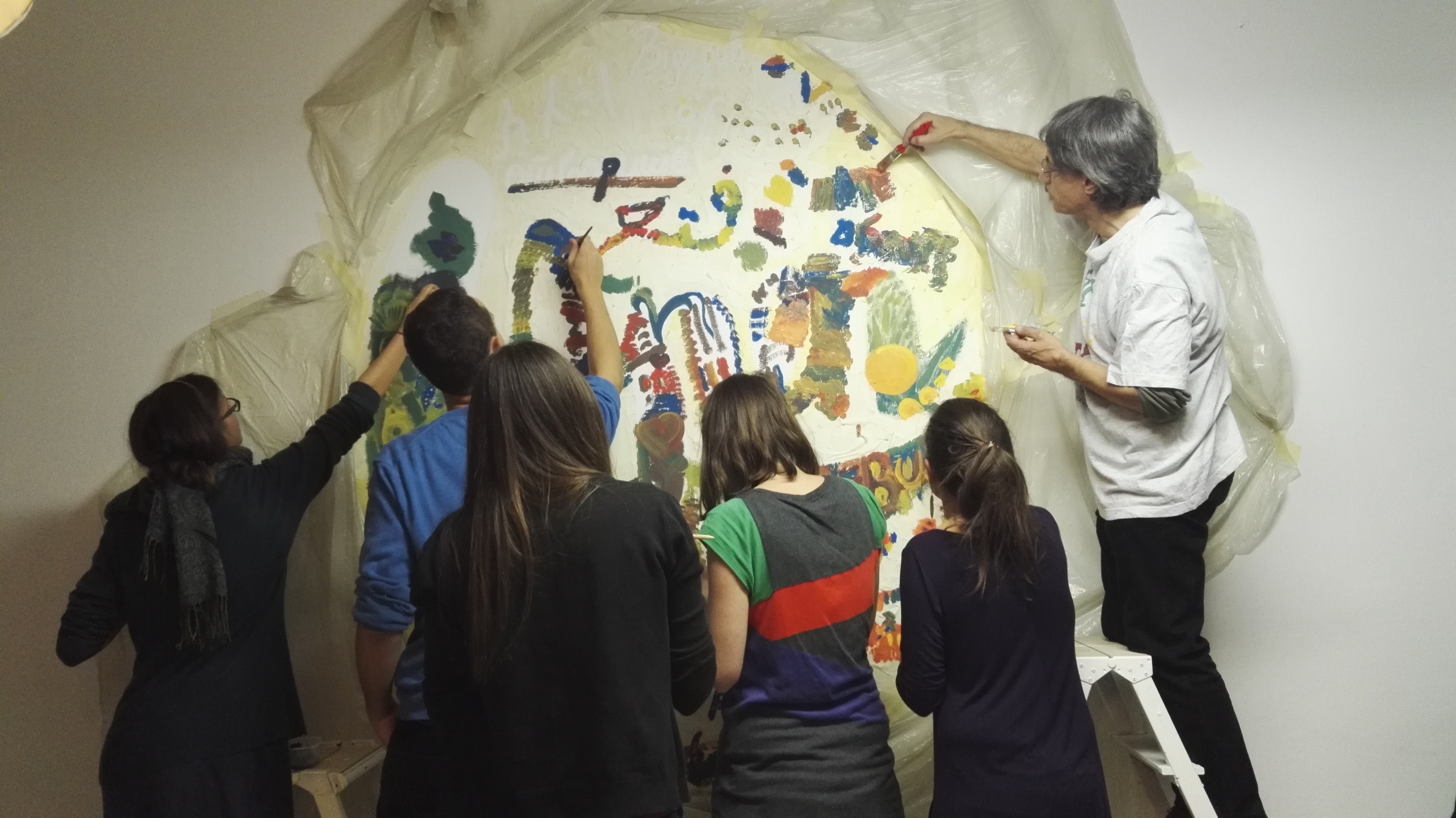
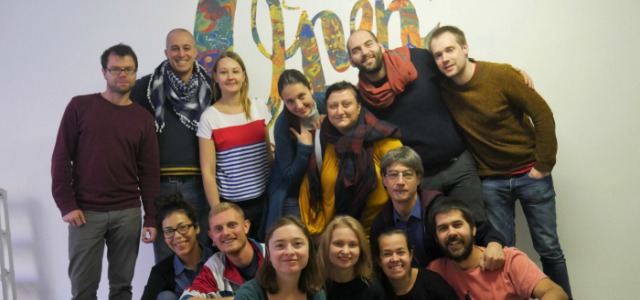
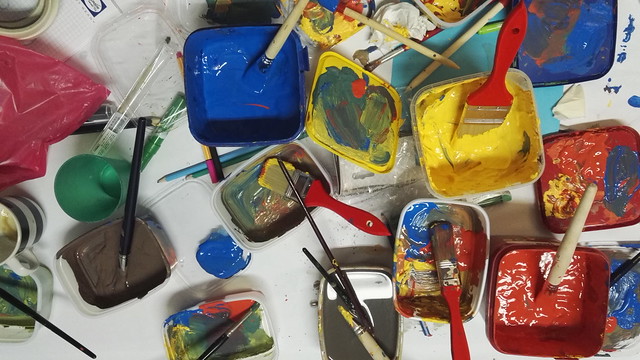
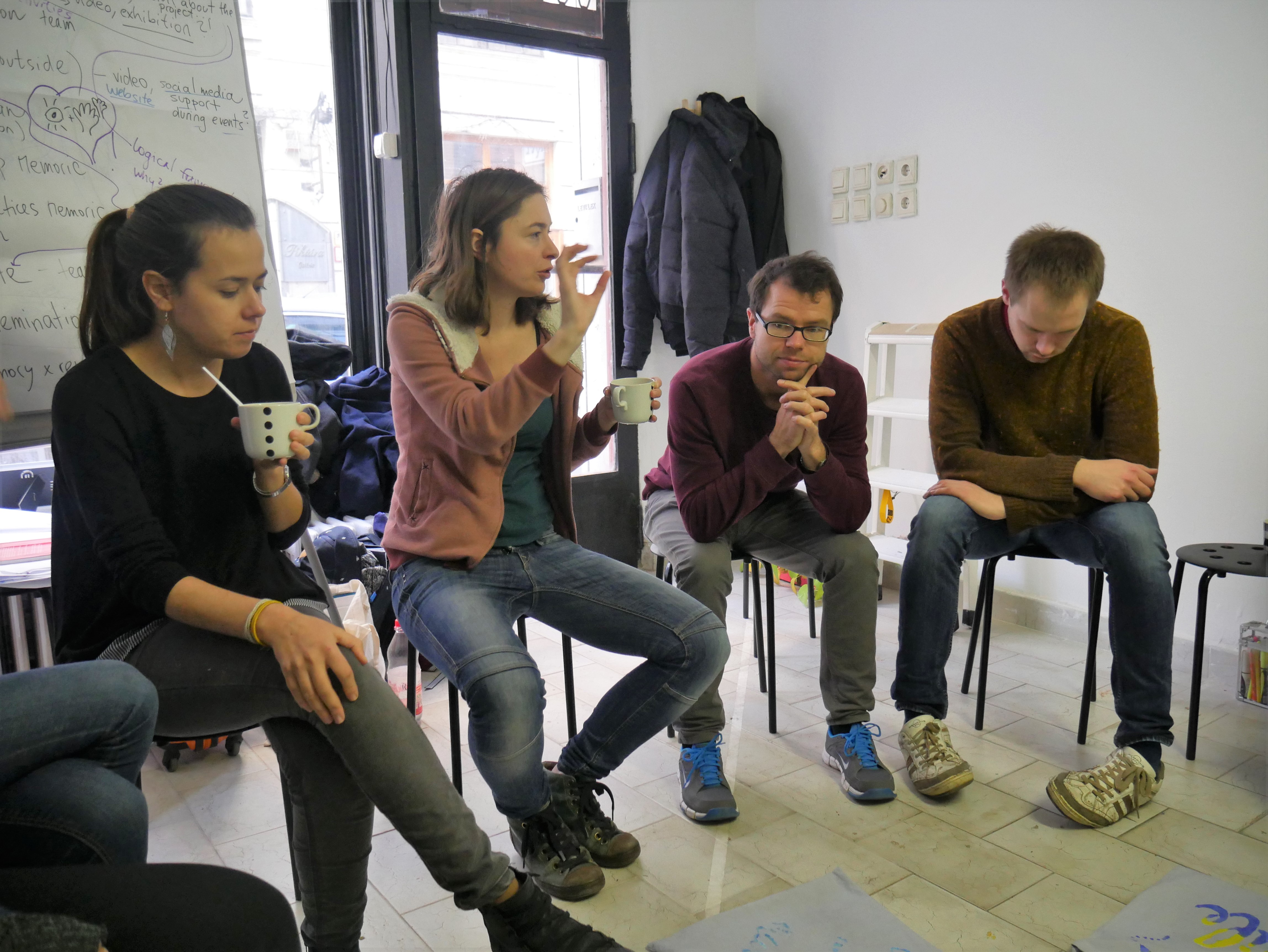
Refugee Meeting
18th – 22nd January 2017, Serbia
SCI activists gathered together in Novi Sad to develop an action plan regarding the refugee situation.
Day 1 :
- Presentation of the activities the participants were involved and definition of the capacities
- Introduction into history of SCI and refugee work
- Definition of available resources
- Creation of an overview of the existing SCI structures & capacities
- Overview of current state in the world
- Conclusion of what SCI needs to do by comparing the mission and implemented activities, in order to define what has to be improved
Day 2:
- Trip to Subotica
- Discussion about the political dimension of the refugee influx and how to be politically active within SCI
Day 3:
- Definition of the needed actions
- How to respond in emergency and establishment of a strategic approach
- Skype sessions with IEC providing feedback
- Creation of action plan
Exchange and knowledge sharing about refugee situation and activities in the field in order to develop an Action Plan for 2017.
Learn and Get Inspired from the Past
10th – 15th March 2017, Spain
This was the first official seminar of PATH and A Route to Connect projects, which were both part of the Building Bridges campaign of SCI. Participants from 9 different countries gathered to learn about the Spanish Civil War. It was the starting point from where they refocused and closed their perspective and analysed the global consequences, dangers, risks and best practices on forced migrations, in order to reflected together on the current refugee situation and analysed its similarities to current conflicts and forced migration nowadays. The seminar was hosted by SCI Catalunya and co-funded by the European Youth Foundation and the Europe for Citizens programme of the European Union.
During the seminar the participants visited the Exile Memorial Museum (MUME), they did a day hike through the routes of the end of the Spanish Civil War, they organized a human library with a Spanish Civil War veteran and Syrian refugees and they participated in different workshops and lectures on the topic. Throughout the seminar the participants were divided into three working groups: video, exhibition and final event. The video group made interviews and filmed events during the seminar and uploaded material online to be edited as part of a larger video by Laura Basta. The exhibition group prepared photos and texts for the final event of the PATH project, which was held in January 2018 in Sofia, Bulgaria. The final event working group prepared speeches for the final event.
The participants of the seminar described the experience as inspiring and empowering. They learned about good practices of international solidarity that emerged from the civil society during the Spanish Civil War. It was important to remember that behind every human tragedy there is a political responsibility and many global consequences. It was empowering to do it together with a group of participants from so many different and enriching backgrounds. And it was necessary that together they found new ways to have an impact on the present and to create a more peaceful future. A common agreement seemed to be that it is time to learn from the past and stop making the same mistakes. The seminar in Spain planted a steady ground for the upcoming activities of PATH and A Route to Connect projects. A big thank you to the organizers and everyone who was part of making this seminar happen!
Refugees from the civil war kept their motivation to fight for a life in peace and dignity. Responsibility for their families and comrades and hopes for a better future enabled them to resist the repression of Franquist fascism. In the later course of their lives, many started to reclaim their biographies. Refugees from the whole world can draw hope from their example, and connect to their stories. By now, a new wave of remembrance includes the young population, and the memory of the Civil War can pass on into general awareness. As the last witnesses of the Spanish Civil War die, their stories shall not fade away with them.
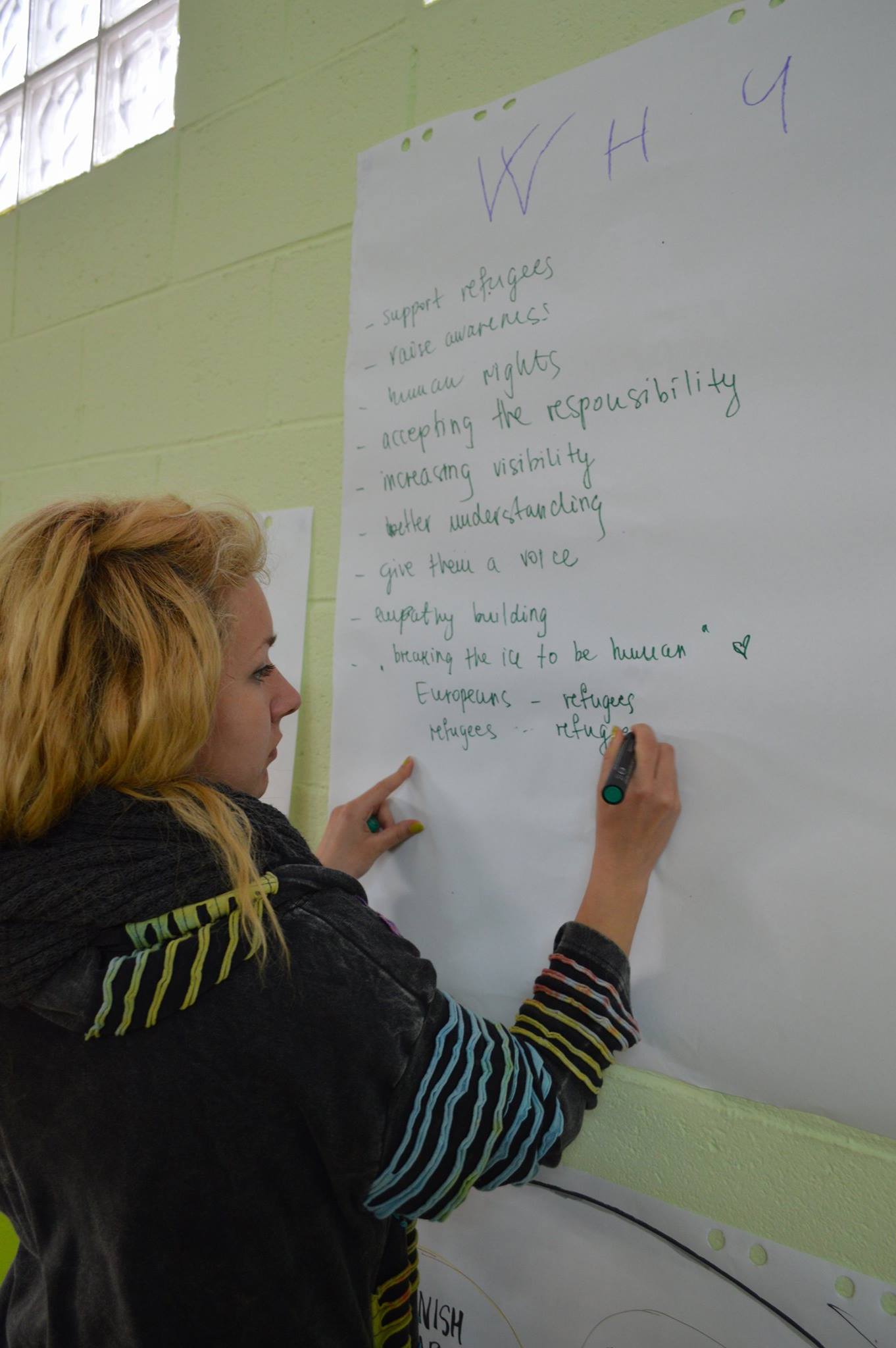
“Looking back at the Spanish Civil War we recognized so many patterns that are being repeated nowadays: the incapability of governments of acting efficiently in front of an humanitarian crisis, the misuse of information and the manipulation of the reality, the polarization of societies and the rise of racism… The nonsense of war when those who cause it say it’s done to achieve peace. Sharing thoughts with other participants, we could not help but feel frustrated. But most of all, we felt the urgent need of finding a way to push things in the opposite direction.”
Forced migration during Yugoslav War
3rd – 9th April 2017, Serbia
Participants, representing mainly project organisations in Balkans, explored the history of the Yugoslav war and draw parallels between the Balkan and the current Middle east conflicts. The participants got extensive knowledge on the topic of asylum seekers, refugees, internally displaced persons – meaning, history, refugee rights, legal and humanitarian aspects. The project envisaged working with local witnesses, experts and activists and with associations from Novi Sad (NSHC, DC, CK13) and Belgrade (No borders Serbia, Koko Lepo).
During this seminar, participants have learned about the wars in ex-Yugoslavia, forced migrations and challenges during and after the wars, discussed existing initiatives that support refugees and migrants along the “Balkan route” in local communities. They experienced a “living library” (some as readers, some even as books themselves, sharing their personal experiences as refugees or people affected by forced migration) and helped to organize a public event – a documentary film screening followed by a discussion the in CK13 Youth Center in Novi Sad, see the event on Facebook here, which opened the space for narratives from the margin, and highlighted the importance of these stories in order to encourage, build and live peace in times when conflicts and bigotry seem to be given.
Your content goes here. Edit or remove this text inline or in the module Content settings. You can also style every aspect of this content in the module Design settings and even apply custom CSS to this text in the module Advanced settings.
When President Tito died in 1980, the union of Yugoslavia began to unravel, with each republic claiming more autonomy. A series of political upheavals and conflicts in the early 1990s, ethnic cleansing, forced migration and the intervention of the international community. In the aftermath of the Balkan wars, seven independent states emerged. Even though a de-facto peace is now present in the region, a reconciliation process never really took place, leaving room for tensions.
The refugee influx has brought back the attention to the Balkan region as the countries are part of the Balkan route leading to Western Europe. Instead of serving as a uniting point, the influx has actually revealed the ‘fresh wounds’ from the past (instability). Nowadays, the Balkans are once again becoming a hotspot for refugees, but this time they are hailing from different geographical and cultural backgrounds.
The dimensions of the forced migration in the 90s and the current one share a lot of similarities, as well as differences. Insecurity, dependence on humanitarian and legal aid and the intense uncertainty concerning the family situation are all common features. When it comes to the differences, in the 90s, there was a relative stability in the ‘collective’ refugee centres, while currently, the situation is constantly changing with closing and eviction of camps, barracks and even ‘jungles’, along with the closing-up of the borders. Another aspect is the different socio-cultural background of the refugees now, including the different languages.
“I think that this seminar was an excellent experience, we have to learn how to face violence and discrimination, but not for now and not just in our local place.”
How to Integrate Refugees in European Society through Volunteering
25th – 31st October 2017, Spain
The main objective of the seminar that was organised by SCI Madrid, was to promote the integration of refugees into European society through volunteering in order to accelerate and facilitate their integration. The exchanges built on the knowledge and experiences of the participants using non-formal education methods. The seminar was supported by the European Commission through the Erasmus+ Programme.
Specific objectives of the activities:
1. Promote awareness and reflection on the situation of refugees in Europe and how to promote their integration through volunteering.
2. Profit the experience and knowledge of organizations and volunteers to encourage the integration of refugees through volunteering.
3. Generate tools and methods for the integration of refugees into the community through volunteerism for later replication in other NGO’s.
25 young activists and volunteers and staff from 16 countries and a total of 21 organisations worked together to create the manual for volunteering organisations on how to integrate refugees into European society through volunteering. Access the manual here.
The idea of the project came from the local group of volunteers in SCI Madrid called “Teachers”. After several years of accompanying the students of their classes (immigrants, refugees, etc.) to become volunteers in SCI and active agents in the community, accelerating and facilitating their integration into European society, a beautiful initiative was born to create an international seminar where they can share these good practices with different volunteers from other European organizations and where they can spread and multiply the benefits of it, and also learn from the other participants’ experiences in similar projects.
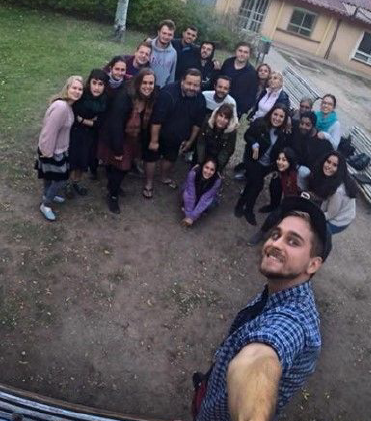
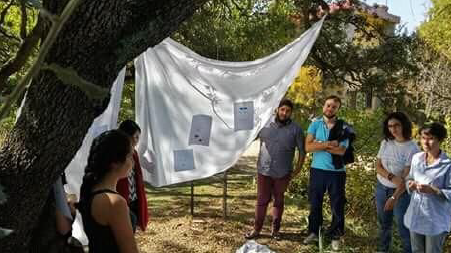
Community Forum – Branching out
06th – 10th June 2018, Belgium
The Community Forum was a platform where activists from SCI Branches, other organizations and volunteers gathered together and exchanged experiences, became inspired and increased their capacities for future work towards creating inclusive societies, facilitating intercultural dialogue and promoting volunteering as a tool for inclusion. The SCI branches had the opportunity to invite local organisation(s) to cooperate including any results from the 2017 Work Plan and as well as to inspire their future actions.
- Open space: sharing best practices
- Study visits
- Workshops
Development of Diverse communities – visual method cards: an easy-to-use and attractive
visual tool that brings inspiration to volunteers and activists by presenting best practices, methods and tools proven to build bridges and
to organize and facilitate inclusive volunteer events or activities. Here you can access the cards and here the instructions for the cards.
The Community Forum was the first activity out of three of the Branching Out project that focused on sharing best practices and methodologies on working with refugees and asylum seekers, as well as strengthening existing – and creating new – partnerships.
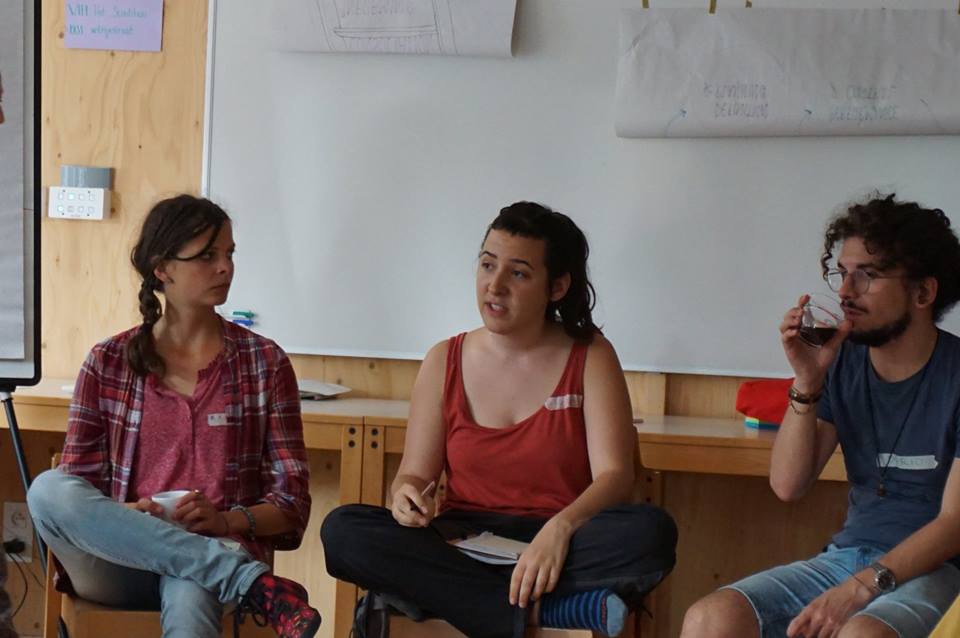
EPM2018
14th – 20th October 2018, Finland
The 2018 SCI Exchange Platform Meeting focused on working with asylum seekers and refugees. There have been several workshops and plenary presentations on this topic.
- A Building Bridges and Refugee Fund Microgrants workshop was organised in order to engage people from different SCI branches into the discussion on the future of the Building Bridges campaign. Pointing out and listing the needs of their branches related to the topic of refugees and asylum seekers. Thinking forward with the campaign – what is the next logical step? Is there still a need to work on this topic in SCI and how?
- The Branching Out: (re)connecting ideas project held its final activity the Strategic Planning workshop to evaluate the project, while taking into consideration what could be improved in our next projects, what were the main challenges, and of course – planning the future steps and initiatives. They also shared the outcomes of the project visually through an exhibition.
At EPM the decision was taken to transform the Building Bridges campaign into a programme that continues supporting Branches, Partners and interested public in organising projects and activities with asylum seekers and refugees. And besides that, project’ experiences and lessons have been presented and evaluated together with the Strategic Plan Team of SCI to transform the project into a strategic approach improving SCI’s practices to engage refugees and migrants into volunteering opportunities.
The aims of EPM2018:
- to evaluate volunteer exchanges and quality of international voluntary projects during the 2018 season
- to share best practices for all activities connected to organizing workcamps and other projects
- to evaluate and plan the activities of the regional working groups in the field of exchanges and voluntary projects with SCI
- to exchange knowledge and build capacities on working for/with youth in a vulnerable position and including them in SCI projects
